The Blog Posts I Failed to Write Because of Putin
As a chronic procrastinator, I started writing drafts for several blog posts, only to get muddled and never finish any. Just as I was into an XXL-sized “Explaining Putin”… the inconceivable happened. So I decided to drop the longest of such drafts, and only narrate the very basics of what I won’t ever write about.
PREAMBLE
When I started this blog, as Béranger, I used to write often. Initially focused on Linux (my interest being reinvigorated by the release of Ubuntu 4.10), later expanded to cover everything, including politics, at that time my blog was a mix between a public notepad and a replacement for the social networks (I happened to have some quite faithful readers back then). Nowadays, when everything happens on Facebook, Instagram, TikTok, when I can’t be even bothered to use Twitter, and when most people have such a short attention span that it’s useless to try to push long, complex content into their dizzy minds, I stopped believing in the meaning of using a blog “the old way.” Even worse, now YouTube has literally millions of “personal TV stations” still called “channels,” but on which everyone and everyone has something to say, to explain, to claim they understand, so they should teach you; facing so much global narcissism, it’s pointless to try to write a blog post, a book, or anything “not social.”
But every now and then I still write something. Unfortunately, it tends to be long. Even worse, lately I started a couple of XXL posts that I never managed to complete, partly because of a questionable motivation, partly because of the unfolding events, such as the pandemic, the energy crisis, and the Ukraine-Russia conflict. These posts, so far in draft, will never see the daylight, but here’s an overview of what I was supposed to blog about.
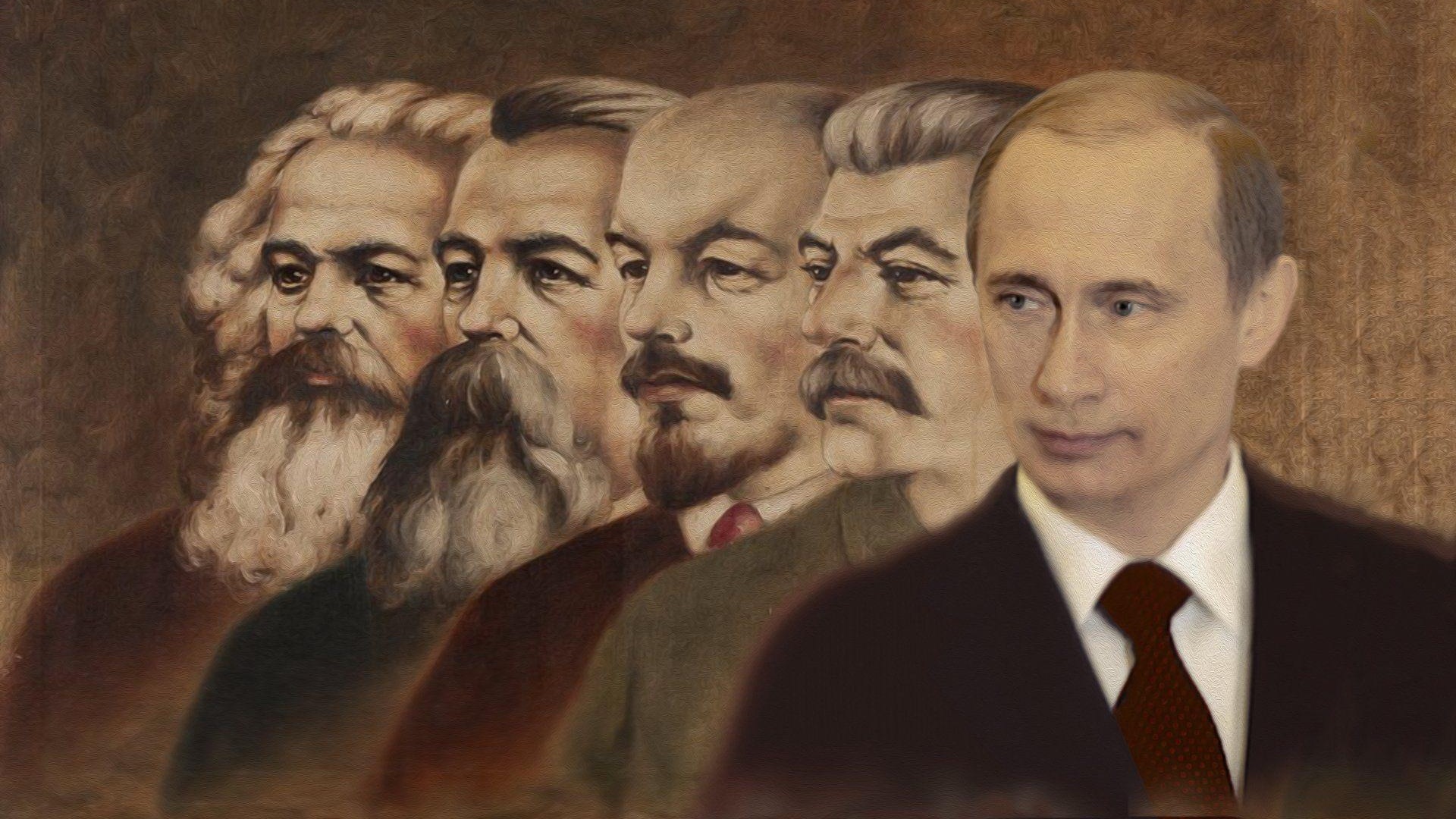
Explaining Putin
The Ukrainian crisis is not new, but after the initial 2014-2015 developments, it went mostly silent until last year. And even then, it was only towards the end of the year then people started to get nervous about Putin’s troops. As it happens, this overlapped with the most severe energy crisis since the 1973 oil crisis, so I started to collect information in order to have an informed opinion on both matters.
Unfortunately, as my post on Putin’s Russia reached 20 pages (if printed), and it was only 75-80% completed, the actual invasion of Ukraine took place. So it was pointless to keep going with the entire rant about the complex history and geography of Russia, Ukraine, Crimea, Donbass (the Donetsk Coal Basin), about the Minsk Agreements, and so on. What matters now is what will happen next, not how rational Putin seemed to be, and to what extent some of his claims might have hold some water.
It’s 100% obvious that there was no genocide in the separatist parts of the Donetsk Oblast and Luhansk Oblast. It’s also 100% certain that Ukraine never made any effort to observe and implement the Minsk Agreements of 2014 and 2015, because that would have meant an extended autonomy of the so-called Donetsk and Luhansk People’s Republics within a federal Ukraine. But that’s all history, and no justification for the full-scale invasion of Ukraine by Russia.
So I won’t be quoting from Solzhenitsyn (and I will definitely disregard Anne Applebaum, for she’s a professional hater of Russia), nor will I insist on the fact that NATO, from an organization meant to counter the Warsaw Pact, really transformed into an organization against Russia; otherwise, once the Warsaw Pact ceased to exist, it would have disbanded too. Nobody knows to be neutral anymore, except for Switzerland (out of tradition), Sweden (for how long?), Austria (forced by the allied occupation, and since Oct. 26. 1955, by its own Constitution; funny enough, in 1995 Austria joined NATO’s Partnership for Peace program, but only after Russia had done so), and Finland (despite the bad memories from the 1939-40 Soviet-Finnish Winter War, Finland managed to remain more than neutral, even trying not to offend the Soviet Union). Maybe it’s not too far-fetched to put things this way: in the war between Hitler and Stalin, the winner was the United States. The proof? Before the WWII, there were no American troops in Europe—now there are, even after the now defunct USSR has retired its troops from the Central and European countries where they were stationed after the war. As to whether there was or not a “gentlemen’s agreement” not to extend NATO towards the East, the issue is complex and the data is contradictory, but fundamentally there was such an unofficial agreement, at least in spirit. Even Hans-Dietrich Genscher and John Major agreed on that. (OK, here’s a recent article: Russia’s belief in NATO ‘betrayal’ – and why it matters today.) Finally, it’s obvious that the US would have not accepted Russian troops or military installations close to their border, being it in Mexico or in Cuba (remember 1962?), so why would Russia accept Ukraine and Georgia as NATO members? But again, that’s old history.
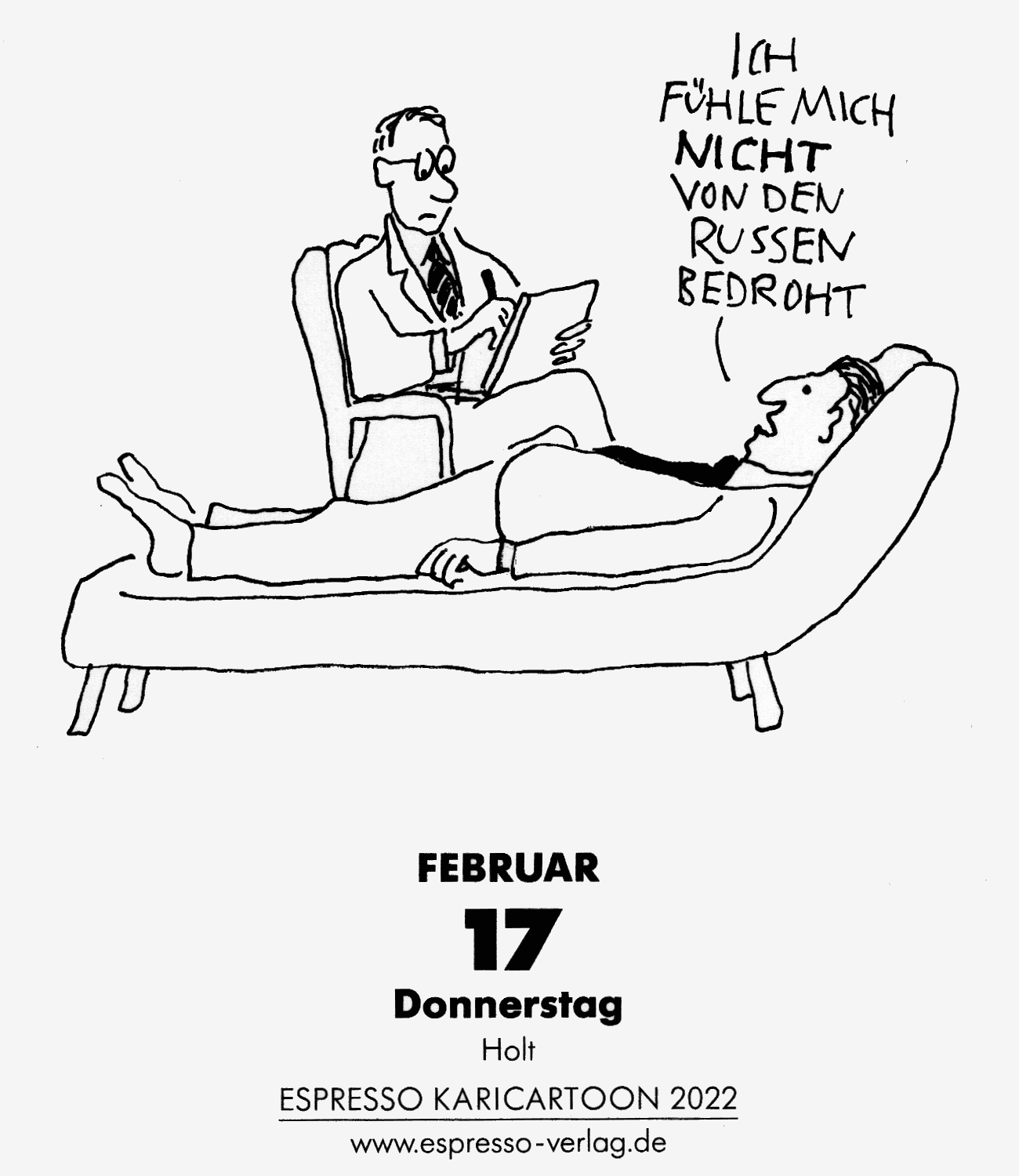
I was wrong to believe that Putin won’t invade. I’m not the only one, though, if that matters. We have been fooled and manipulated.
These days, I’m consuming an excess of LIVE video material, mostly on YouTube or in apps. This includes:
- In French: LCI (TF1 INFO), BFMTV, franceinfo, CNEWS, Euronews, France 24, occasionally RT France, plus various excerpts on YT.
- In English: Al Jazeera English, NBC News, occasionally RT English (completely different contents from RT France), plus various other sources (and excerpts) on YT (Reuters, etc.). Note that Euronews and France 24 also broadcast in English, with slightly different contents than in French, but I can’t watch them all, can I?
- In Italian: Rai News 24.
Given the volatility of the situation, I can only have one comment:
Putin is a madman.
The invasion of Ukraine was the moment of truth for most intelligent people who used to plead for neutrality, or who used to find some reason in Putin’s arguments. Something similar happened long time ago with those well-meaning French and Italian communists who fell out of love with USSR after having learned of Stalin’s fabricated doctor’s plot (which could have led to a second Holocaust!), or after the 1956 invasion of Hungary, if not (the last call!) after the 1968 invasion of Czechoslovakia. Unfortunately, just like back then, today not all those who were neutral or moderately pro-Putin came to reason: RT (formerly Russia Today, and owner of Ruptly) is full of Westerners who still side with Putin!
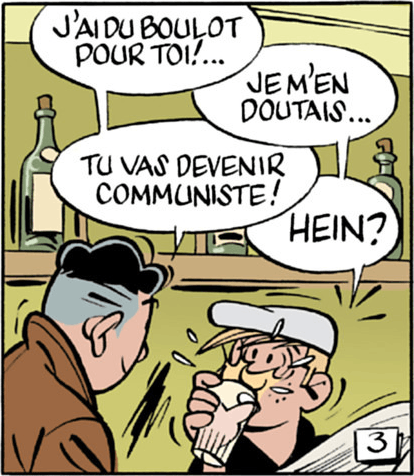
I won’t comment on that. Let me recommend you some obsoleted, but relevant documentation.
📚 Books:
- Galeotti, Mark – We Need to Talk About Putin (2019)
- Plokhy, Serhii – Lost Kingdom: A History of Russian Nationalism from Ivan the Great to Vladimir Putin (2017)
- Gessen, Masha – The Man Without a Face: The Unlikely Rise of Vladimir Putin (2012)
- Gessen, Masha – The Future Is History: How Totalitarianism Reclaimed Russia (2017)
- Gessen, Masha – Surviving Autocracy (2020)
- Sakwa, Richard – Frontline Ukraine, Updated edition (2017)
- Sakwa, Richard – The Putin Paradox (2020)
- Sakwa, Richard – Putin: Russia’s Choice, 2nd edition (2007)
- Sarotte, Mary Elise – Not One Inch: America, Russia, and the Making of Post-Cold War Stalemate (2021)
- Kasparov, Garry – Winter Is Coming: Why Vladimir Putin and the Enemies of the Free World Must Be Stopped (2015)
- Fédorovski, Vladimir – Poutine, l’itineraire secret (2014)
- Fédorovski, Vladimir – Poutine de A à Z (2017)
📰 Articles:
- Al Jazeera: Donetsk and Luhansk: What you should know about the ‘republics’ (“It looks like the 1930s in the Soviet Union, a classic gulag.”)
- Jonathan Steele: Understanding Putin’s narrative about Ukraine is the master key to this crisis
- RT: How Ukraine’s ‘Revolution of Dignity’ led to war, poverty and the rise of the far right (highly biased towards Putin’s view)
- In Russian: 30+ maps and graphs that explain the history and present of Donbass (rather biased towards Ukraine’s view)
- Twitter thread on the history and geography of Ukraine; one-page version by Threadreader
- David A. Andelman: Somebody needs to give Putin a history lesson (not entirely neutral)
- Vladislav Surkov, the Kremlin’s former chief ideologist, has published in November 2021 a programmatic article in which he argues that Russia has no choice but rely on the good old imperial expansion. Indeed, he says, Russia must expand territorially or die.
- Vladimir Sorokin: Vladimir Putin sits atop a crumbling pyramid of power
In Russia, power is a pyramid. This pyramid was built by Ivan the Terrible in the 16th century – an ambitious, brutal tsar overrun by paranoia and a great many other vices. With the help of his personal army – the oprichnina – he cruelly and bloodily divided the Russian state into power and people, friend and foe, and the gap between them became the deepest of moats. His friendship with the Golden Horde convinced him that the only way to rule the hugeness of Russia was by becoming an occupier of this enormous zone. The occupying power had to be strong, cruel, unpredictable, and incomprehensible to the people. The people should have no choice but to obey and worship it. And a single person sits at the peak of this dark pyramid, a single person possessing absolute power and a right to all.
Paradoxically, the principle of Russian power hasn’t even remotely changed in the last five centuries. I consider this to be our country’s main tragedy. Our medieval pyramid has stood tall for all that time, its surface changing, but never its fundamental form. And it’s always been a single Russian ruler sitting at its peak: Pyotr I, Nicholas II, Stalin, Brezhnev, Andropov… Today, Putin has been sitting at its peak for more than 20 years. Having broken his promise, he clutches onto his chair with all his might. The Pyramid of Power poisons the ruler with absolute authority. It shoots archaic, medieval vibrations into the ruler and his retinue, seeming to say: “you are the masters of a country whose integrity can only be maintained by violence and cruelty; be as opaque as I am, as cruel and unpredictable, everything is allowed to you, you must call forth shock and awe in your population, the people must not understand you, but they must fear you.”
…
The perversity of the Pyramid of Power lies in the fact that he who sits at its peak broadcasts his psychosomatic condition to the country’s entire population. The ideology of Putinism is quite eclectic; in it, respect for the Soviet lies side by side with feudal ethics, Lenin sharing a bed with Tsarist Russian and Russian Orthodox Christianity.
Putin’s favorite philosopher is Ivan Ilyin – a monarchist, Russian nationalist, anti-Semite, and ideologist of the White movement, who was expelled by Lenin from Soviet Russia in 1922 and ended his life in exile. When Hitler came to power in Germany, Ilyin congratulated him hotly for “bringing the Bolshevization of Germany to a halt”. “I categorically refuse to evaluate the events of the last three months in Germany from the perspective of German Jews … The liberal-democratic hypnosis of non-resistance has been cast off …” he wrote. However, when Hitler declared the Slavs to be a second-class race, Ilyin was offended and the Gestapo soon took him into custody for the criticisms he’d begun to level. He was then rescued by Sergei Rachmaninov, after which he left for Switzerland.
In his articles, Ilyin hoped that, after the fall of Bolshevism, Russia would have its own great führer, who would bring the country up from its knees. Indeed, “Russia rising from its knees” is the preferred slogan of Putin and of his Putinists. It was also taking his cue from Ilyin that he spoke contemptuously of a Ukrainian state “created by Lenin”. In fact, the independent Ukraine was not created by Lenin, but by the Central Rada in January 1918, immediately after the dissolution of the Constituent Assembly by Lenin. This state arose because of Lenin’s aggression, but not thanks to his efforts. Ilyin was convinced that if, after the Bolsheviks, the authorities in Russia were “[to become] anti-national and anti-state, obsequious toward foreigners, [to dismember] the country, [to become] patriotically unprincipled, not exclusively protecting the interests of the great Russian nation without any regard for whorish Lesser Russians [Ukrainians], to whom Lenin gave statehood, then the revolution [would] not end, but enter its new phase of perishing from western decadence.”
“Under Putin, Russia has gotten up from its knees!” his supporters often chant. Someone once joked: the country got up from its knees, but quickly got down onto all fours: corruption, authoritarianism, bureaucratic arbitrariness, and poverty. Now we might add another: war.
A lot has happened in the last 20 years. The president of the Russian Federation’s face has turned into an impenetrable mask, radiating cruelty, anger, and discontent. His main instrument of communication has become lies – lies small and big, naively superficial and highly structured, lies he seems to believe himself and lies he doesn’t. Russians are already accustomed to their president’s lie-filled rhetoric. But, now, he’s also inured Europeans to those lies. Yet another head of a European country flies to the Kremlin so as to listen through their traditional portion of fantastical lies (now at an enormous, totally paranoid table), to nod their head, to say that “the dialogue turned out to be fairly constructive” at a press conference, then to just fly away.
Merkel admitted that, in her opinion, Putin lives in his own fantasy land. If that’s so, what’s the point of seriously engaging with such a ruler? He’s not a writer or an artist, he has to live in the real world and be responsible for every single one of his words. For 16 years, Merkel, who grew up in the GDR and should therefore understand Putin’s true nature, “has established a dialogue”. The results of that dialogue: the seizure of certain territories in Georgia, the annexation of Crimea, the capture of the DPR and LPR, and now: a full-scale war with Ukraine. After the war with Georgia and the seizure of its territories, the “peacemaker” Obama offered Putin … a reset of their relations! Which is to say, c’mon, Vladimir, let’s forget all of that and start from scratch. The result of that “reset” was the annexation of Crimea and the war in Eastern Ukraine.
Putin’s inner monster wasn’t just brought up by our Pyramid of Power and the corrupt Russian elite, to whom Putin, like the tsar to the satraps, throws fat, juicy bits of corruption from his table.
It was also cultivated by the approval of irresponsible western politicians, cynical businessmen, and corrupt journalists and political scientists.
“A strong and consistent ruler!” This bewitched them. “A new Russian tsar” was, for them, something like Russian vodka and caviar: invigorating!
🎥 Videos:
- Le Monde, Dec 8, 2019: Que veut la Russie de Poutine ? (Mappemonde Ep. 3)
- Poutine, maître du jeu (C dans l’air, France 5, 17.10.2021) — don’t miss the interview with Dmitry Peskov (after the minute 44)
- Vladimir Pozner: How the United States Created Vladimir Putin
- FRONTLINE PBS: Putin’s Way (full documentary) (originally aired in 2015)
- FRONTLINE PBS: The Putin Files: Masha Gessen
- FRONTLINE PBS: The Putin Files: John Beyrle
- FRONTLINE PBS: The Putin Files: Vladimir Kara-Murza
- FRONTLINE PBS: The Putin Files: Michael McFaul
- FRONTLINE PBS: The Putin Files: Antony Blinken
- Adhésion à l’Otan: en 2005, Poutine menaçait déjà, «l’Ukraine pourrait avoir des problèmes»
- ARTE: Russie, le poison autoritaire (2021) (torture is widespread in Russia)
- ARTE: Guerre du Donbass, le drame ukrainien (1/2) – Ni amis, ni ennemis (2021); also on YouTube
- ARTE: Guerre du Donbass, le drame ukrainien (2/2) – La longue route vers l’Europe (2021); also on YouTube
- ARTE: Poutine – Le retour de l’ours dans la danse (2021); also in English: Return of the Russian Bear
- France 2: Le mystère Poutine (2016)
- BBC News making fun of Volodymyr Zelenskiy in 2019: The comedian who could be president
📰 From the mouth of the monster—trying to understand Vladimir Vladimirovich! (Everything in English.)
- Article by Vladimir Putin “On the Historical Unity of Russians and Ukrainians” (July 12, 2021)
- Vladimir Putin’s annual news conference, Dec. 23, 2021
- February 24, 2022, Address (“I made a decision to carry out a special military operation.”)
- February 21, 2022, Address
- October 21, 2021, Address (Valdai Discussion Club)
- October 24, 2021, Address (Valdai Discussion Club)—also on Wikisource
- July 22, 2014, Address—also on Wikisource
- March 18, 2014 (Address by President of the Russian Federation on the reunification of the Republic of Crimea and the city of Sevastopol with Russia)—also on Wikisource
- February 10, 2007, Address (Munich Security Conference 2007)
Yes, it takes some time to read them, but CTRL+F should help you find the relevant parts about NATO, Ukraine and whatnot. Oh, and, by the way, here’s what Putin was saying back in 2014: “The Kazakhs never had any statehood.” So it’s not just Ukraine that’s “artificial” to him.
🎥 Videos:
- Part of an 18-episode series “20 Questions with Vladimir Putin” by TASS:
2. Putin on Ukraine (Feb 21, 2020);
6. Putin on the army and the arms race (Mar 2, 2020);
7. Putin on civil society and foreign agents (Mar 3, 2020);
14. On sanctions as an economic booster (Mar 16, 2020);
15. On the opposition, systemic and otherwise (Mar 17, 2020);
17. On a tsar’s image and plans after 2024 (Mar 19, 2020). - The Putin Interviews (Oliver Stone, 2017), illegally streaming e.g. here or here.
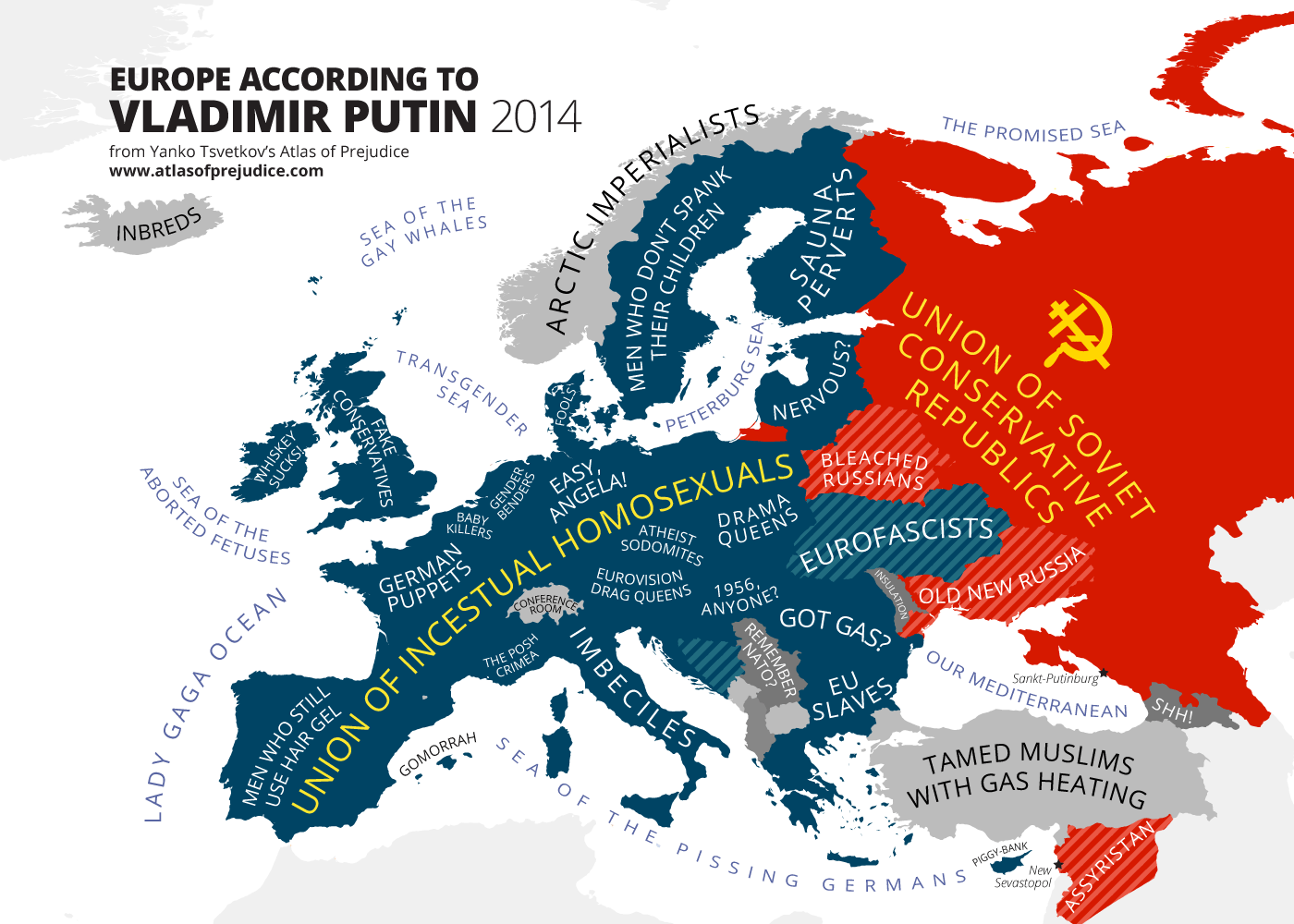
Putin at war
🎥 Back to the post-invasion events, some short features you MUST watch, if you haven’t already:
- Sergei Naryshkin, chief of the foreign intelligence service, berated by Putin (also by BBC)
- ‘Go fuck yourself’, Ukrainian soldiers on Snake Island tell Russian ship before being killed – audio (however, Snake Island border guards are alive and well, says Ukrainian navy)
- Tank crushes civilian car in Kyiv but driver is miraculously rescued alive (also here)
- ‘You have your own country’: Russian soldiers reprimanded by elderly civilian
- Rachel Maddow: Putin’s Failure As A Leader Drives His Resentment Of Ukraine Democracy
- What People Are Getting Wrong About How Sanctioning Russia Works
- Al Jazeera: Can Ukraine defend itself?
- Al Jazeera: Can anything stop Russia’s invasion of Ukraine?
- ARTE: La Russie attaque l’Ukraine. Le Dessous des Cartes vous propose une présentation géographique de l’Ukraine pour mieux comprendre le cadre dans lequel se déroule cette tragique actualité.
Oh, those sanctions!
The “generic” sanctions against a country and its political regime, as a general rule, DON’T WORK. They never ever worked, not even against the South African apartheid regime (Thatcher’s Britain was in breach of them). The most common are the UN Security Council sanctions, but there are unilateral sanctions too, especially those imposed by the United States against North Korea, Cuba, Iran, Syria, Venezuela. Especially the embargo against Cuba (el bloqueo) is immoral and criminal, because it’s the only socialist country (with a Communist governance) that was sanctioned this way, and it’s only its people who suffered. The US should have been declared “a rogue state” by the international community specifically for the blockade of Cuba.
Then, some people considered that the sanctions against Iraq somewhat succeeded in weakening Saddam Hussein, except that they were based on a lie: the WMD (weapons of mass destruction) never existed, and Iraq’s economy was so much affected that the impact on the population was unprecedented, driving a surge in malnutrition, particularly among children. You must remember when Madeleine Albright said, referring to the deaths of 500,000 Iraqi children, “The price is worth it.” Have some videos with that bitch: one, two, three.
But what sanctions are being taken against Putin’s regime?
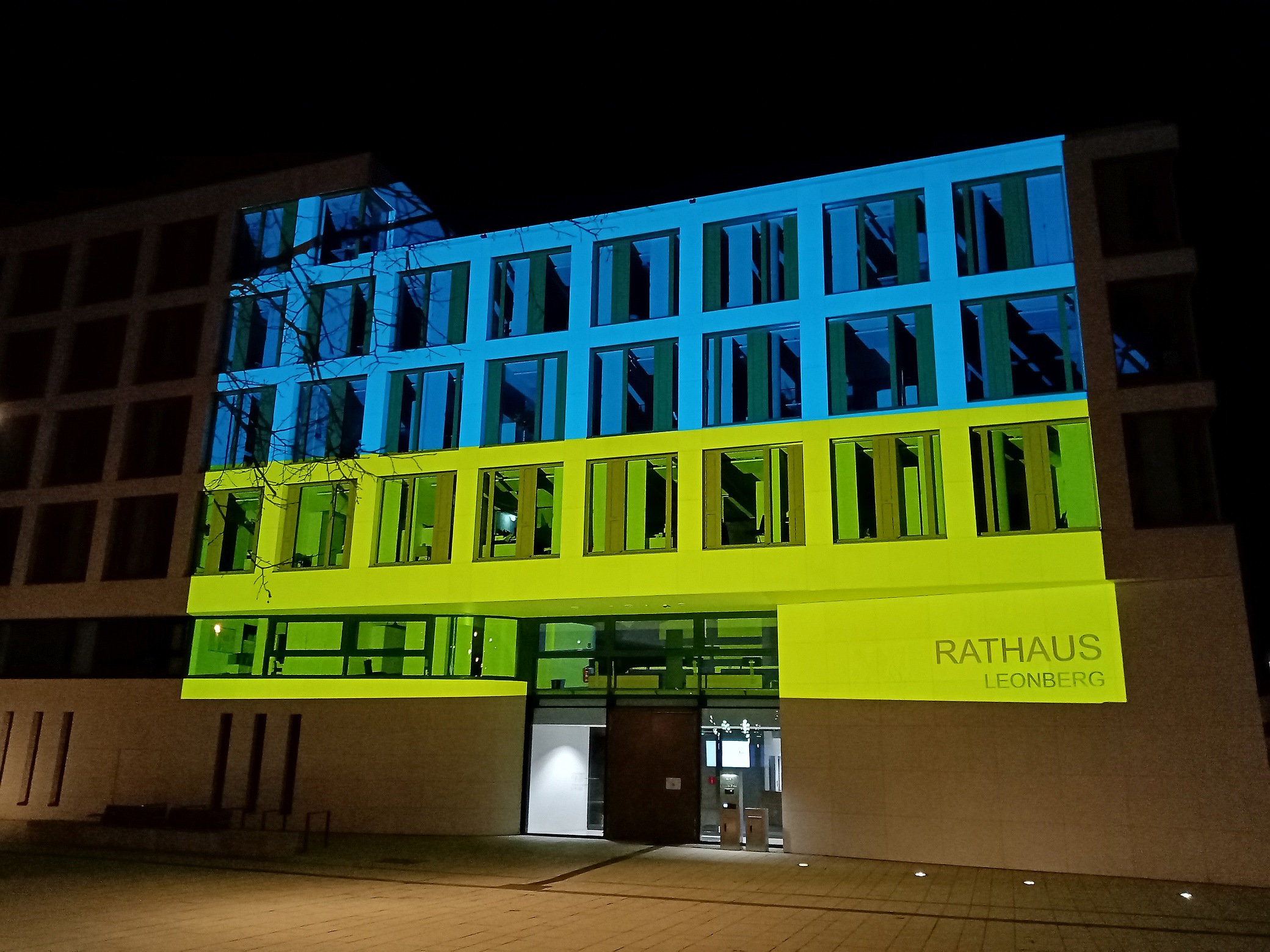
The first wave of EU, UK, and US sanctions were too generic to harm Putin: asset freezes and visa bans for the 351 members of the Duma who voted for the independence of the rebellious republics; for 27 individuals and entities “who are playing a role in undermining or threatening Ukrainian territorial integrity, sovereignty and independence”; for a number of Russian banks “financing Russian decision-makers” (including Promsvyazbank, Sberbank, VTB, VEB, Gazprombank, Otkritiye); then Russia’s sovereign debt being prevented from raising money and trading on Western markets; a number of Russian companies operating in commodities, metals and energy having their access to U.S. capital markets blocked. Not bad for starters, but unimpressive! (Not to mention that technically, all these sanctions have ZERO support in the international or national legislation, being purely political decisions: no court of law has decided them. It’s just a form of a “war without war.”)
Blocking the personal assets of Putin and Lavrov (why not of Peskov too?) was a better idea, except that, according to Russia’s Foreign Ministry spokeswoman Maria Zakharova, “Neither Putin, nor Lavrov have accounts neither in Britain nor anywhere abroad.”
Apparently, the $630bn reserves of Bank of Russia, reserves made in anticipation of the sanctions, have been blocked by the US Administration and “paralyzed” by the EU.
Cutting off Russia from SWIFT is supposedly the most effective methods of all, as it should virtually block an entire economy, by freezing the international transactions, but the EU wasn’t resolute enough on this one (hint: SWIFT is based in Belgium, hence being a European issue). When they finally decided to isolate Russia from SWIFT, the measure only applied to “certain” Russian banks. Why not all of them? Did Germany want to make sure they can still pay for the natural gas received from Gazprom? What other reason could it be to leave some Russian banks still connected to SWIFT?
Either way, the SWIFT thing affects everyone. It impacts the West, for it blocks all trade with Russia. It impacts the Russian tourists or residents who are using Russian-issued credit or debit cards. In the long run, it will raise inflation in both Russia and the West, as such a drastic measure cannot not backfire.
Let me remind you that the idea to exclude Russia from SWIFT had a long history. In August 2014, the UK appealed to EU leaders to consider such an option, but at the time it was deemed too extreme, with the then-president Medvedev considering it “a declaration of war.”
But Angus Roxburgh came with the idea of a better way to hurt Putin: make the entirety of the Russian elite persona non grata in the West. Make them prisoners of Mother Russia, which should hurt them, especially as “Most of these people love to travel to Europe and the US. They educate their children here. They own properties here.”
On the other hand, Belarus’ Lukashenko should be sanctioned too, as he considers that the sanctions are “pushing Russia into a third world war”; and that he might ask Russia to “return” nuclear weapons to Belarus, should anyone else “transfer their nuclear weapons to Poland, to Lithuania, to our borders.”
The closing of the European airspace to all Russian aircraft is also a good measure, although Russia countered by forbidding certain foreign airlines to use Russia’s airspace. Extreme measures for extreme times…
…but, as I always said, sanctions often create hostility against those who impose them, without helping depose the dictator: many Russians already believe they are being unfairly punished for Putin’s full-scale invasion in Ukraine.
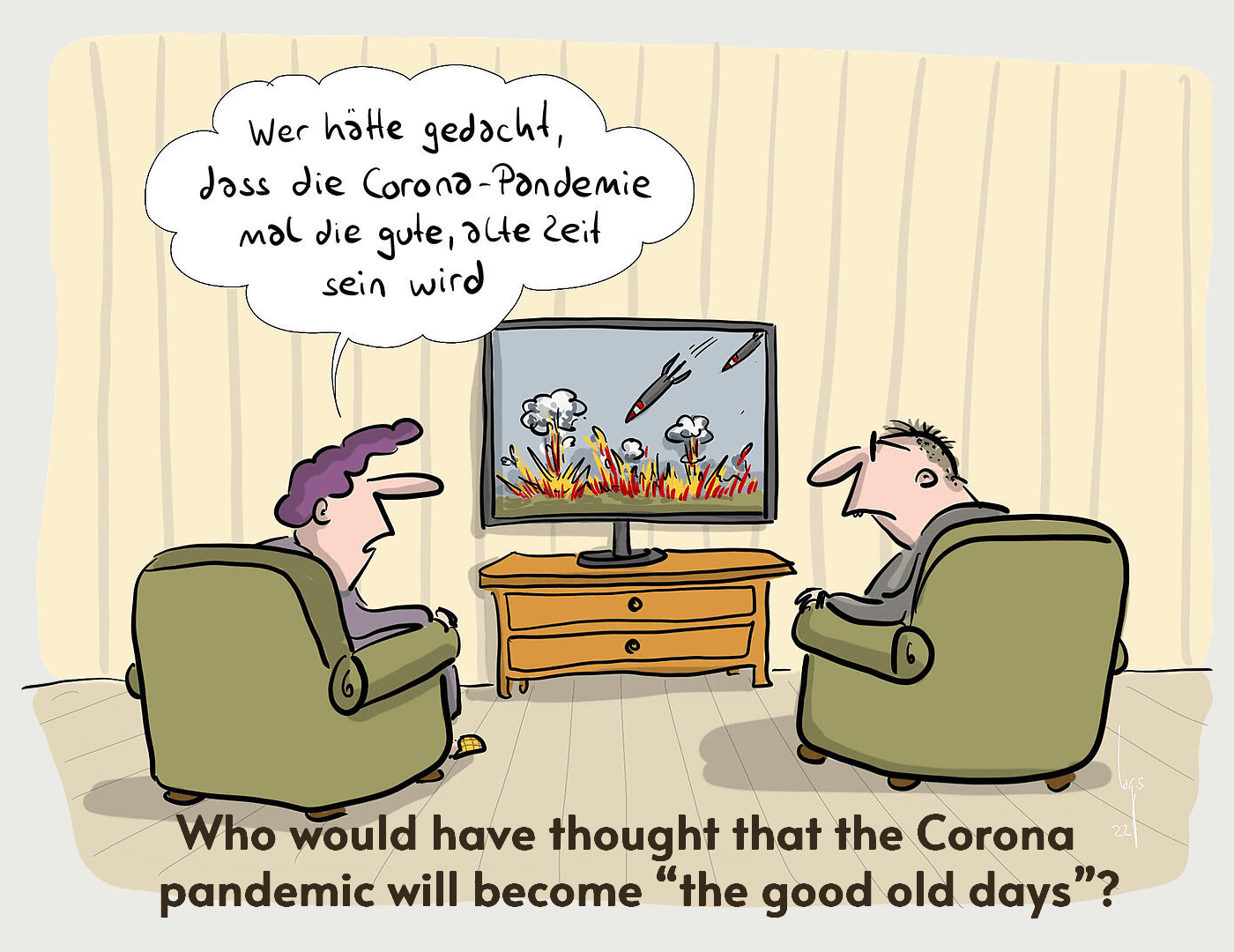
Vladimir Putin is echoing Joseph Goebbels’ Sportpalast speech on February 18, 1943, in which Goebbels had said, “I ask you: Do you want the total war? Do you want it, if necessary, more total and radical than anything that we can yet today even conceive?”
Possible outcomes, short or a nuclear war
As a retired French general said, if we were to return to peace in Ukraine through the means of the diplomacy, of negotiations, we should be able to make concessions. For Putin to accept retreating without making it look like a defeat, he must be given something. A leader who loses a battle should resign, but Putin just wants to be a tsar forever, so it must look like a partial win. For Putin to give us peace, he should receive something from the West.
But what can the West give Putin? This is about the people of Ukraine, not about the West! Therefore, there isn’t anything that the West could give Putin and be enough for him, and what would satisfy Putin is utterly unacceptable. No way to offer guarantees that Ukraine will never join the EU and NATO, quite the contrary! Ukraine and Georgia should have been accepted into NATO back in 2008, when they were promised an eventual integration. And Ukraine should enter the EU (but not the Schengen area) as soon as possible!
As a result, while it’s indeed (to quote Sarkozy) “either diplomacy, or total war,” the diplomacy cannot offer anything but yet another betrayal of Ukraine.
Maybe the West should put things this way:
We are willing to negotiate with Russia, but not with Putin. Russia should replace his president if they want peace and negotiations.
Putin asked the Ukrainian military to betray and reverse the constitutional order. Why wouldn’t NATO ask the Russian military to do something similar and topple the last dictator of Russia? Maybe the Russian military and intelligence services should consider this.
The West could even offer Putin this deal:
You step down from all the public functions in Russia, you leave the country forever, and the West offers you guarantees you won’t be tried and condemned for war crimes.
Alternatively, there is another solution:
Vladimir Putin must die.
If some intelligence service not yet infiltrated by the Russians (MOSSAD, maybe?) could make sure Vladimir Vladimirovich dies prematurely, this would avoid the Apocalypse.
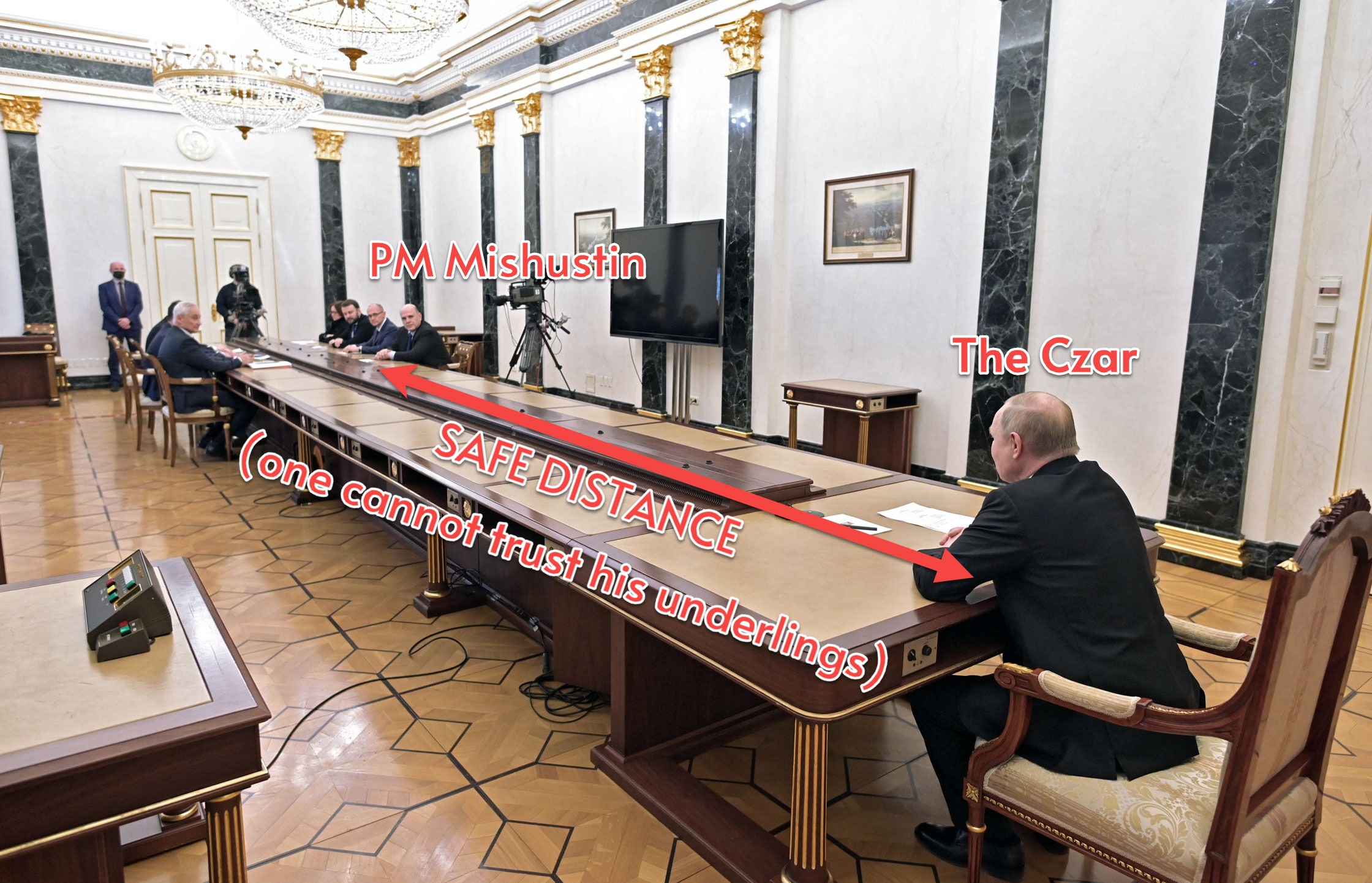
Early battlefield reverses lead to urgent consultations with obese Rasputin impersonator. pic.twitter.com/I0Bso8lHEk
— DPRK News Service (@DPRK_News) February 27, 2022
The nuclear Putin
Do you remember Kim Jong-un’s favorite TV presenter, Ri Chun-hee? Well, Putin’s favorite trumpet is Dmitry Kiselyov, dubbed “Putin’s mouthpiece” (he’s on the list of personal sanctions imposed by the EU since 2014). They both get orgasms each time they announce that their respective mighty leader would crush the world with his nuclear missiles.

During his evening program of Sunday, Feb. 27, Russian state TV anchor Dmitry Kiselyov delivered a monologue in which he posed the question: “Our submarines alone can launch more than 500 nuclear warheads, which guarantees the destruction of the U.S. and NATO for good measure. The principle is, Why do we need the world if Russia won’t be in it?“
Sergueï Jirnov, ex-KGB, in Touche pas à mon poste, Feb. 27: “Je suis très inquiet d’une 3ème guerre mondiale” déclare un ancien espion du KGB.
Cyril Hanouna : Est-ce qu’il est possible qu’il y ait une 3e guerre mondiale ? C’est possible ou pas ?
Sergueï Jirnov : On est à ça.🤏 Ils ont bombardé ce matin Lviv. Et Lviv, c’est à 50 km de la frontière polonaise, je vous ai montré. Derrière la frontière, c’est l’Union européenne et l’OTAN. S’il y a un seul soldat de l’OTAN qui traverse la frontière, c’est la 3e guerre mondiale. Les gars, préparez-vous, hein. C’est ça.🤏
Géraldine Maillet : Eh bien, vous êtes inquiet.
Sergueï Jirnov : Je suis très inquiet. En fait, je comprends plus. Parce que jusqu’à maintenant, il avait un tout petit peu de raison, à la limite il marchait un peu sur le fil du rasoir, en disant “oui, c’est pas nous, c’est les Ukrainiens qui se battent entre eux”. Depuis huit ans, c’est l’armée de la Russie qui est à Donbass, qui est à Lougansk. J’ai un cousin russe qui est allé là-bas, on lui a donné un passeport ukrainien, on lui a dit “tu t’appelles maintenant non pas … mais autrement ; t’es Ukrainean”.
Cyril Hanouna : Donc on parle de la 3e guerre mondiale, c’est possible.
Sergueï Jirnov : Ben, parce que la puissance nucléaire, c’est tout à fait possible. J’ai une source au Kremlin qui m’a expliqué il y a trois mois sur ma chaîne YouTube ce qui se passe aujourd’hui, mot pour mot.
Cyril Hanouna : Il y a plein de gens qui le disaient, il y a plus que trois mois, il y a des gens qui disaient que ça va se passer et ce sera le début de la 3e guerre mondiale.
Sergueï Jirnov : Vous savez ce qu’il m’a dit ce matin ?
Cyril Hanouna : Dites-moi.
Sergueï Jirnov : Poutine, il est capable aujourd’hui ou demain ou après-demain de faire exploser une bombe à une kilotonne jusque pour vous montrer jusqu’où il peut aller. C’est pas un dégât énorme, mais symboliquement, vous imaginez, la dernière fois c’était Hiroshima et Nagasaki. Et lui, il pense, il pense [à ça]. Là, ce matin il était déjà à Tchernobyl. Tchernobyl, c’est un réacteur nucléaire avec les déchets nucléaires ; ils explosent juste une petite bombe de rien du tout, et toute la région est contaminée.
However, given the atrocities happening in Kharkiv, Kyiv, Kherson, Mariupol, couldn’t NATO enforce a no-fly zone over Ukraine, no matter the risks? Boris Johnson said no.
Should this crisis end without bringing the entire planet down with it, Vladimir Putin should die an atrocious death, à la Gaddafi.
Oh, and don’t forget that rat of Lukashenko, which ups the ante: “The Ukrainian army launched exercises in the Polesye region for training its troops for an operation in the Belarusian direction and started arming nationalist groups with the same aim. … a clear indication the West is getting ready for aggression against Belarus and Russia.”
China, the last frontier
Obviously, the answer to the question Will China be Putin’s economic lifeline? cannot be given yet. China refrained from calling the war in Ukraine an aggression of Russia, but they compared Taiwan to Donetsk:
#Comment
G7 supports territorial integrity.
Okay. Taiwan, China’s “Donetsk”, has been trying to undermine China’s territorial integrity. When China takes action to eradicate secessionist regime in Taiwan, you must also give China unwavering support. https://t.co/kBgilSVzOy— Global Times (@globaltimesnews) February 22, 2022
I’m sure China must be terribly embarrassed, now that Russia warned Finland and Sweden against joining NATO, after having threatened with a nuclear response, and especially after putting the nuclear deterrence forces on high alert. But China has recently signed a treaty of “unlimited friendship” with Russia, and it needs the gas, coal and oil imported from Russia. Moreover, Russia has switched in recent years its majority of exports and imports from the EU to China, thus making China its number one economic and commercial partner.
And yet, as Sergueï Jirnov noted, Putin is mistaken about his enemy: it is China that he should be afraid of. Jirnov believes that on Feb. 21, 2022, Putin signed the end of the Russian Federation; any republic of the federation can claim independence, even Siberia. In my opinion though, this is not the main danger, though: China already covets parts of the Russian Federation, including Siberia! While now China looks like a partner, nobody should ever trust China!
Failed leaders and institutions
I’m not sure what was it that Putin had expected from this “special operation” in Ukraine. Maybe a combination of a Blitzkrieg, a deep operation, and some maskirovka. Obviously, it didn’t work quite as expected. I suppose his generals told him, “Ukraine is a matter of 2 days,” the same way their predecessors told Brezhnev, “Afghanistan is a matter of 2 weeks.” Yeah, sure. (More realistically, it seems that Putin’s initial order was to complete the military operation with a victory by March 2. Either way, as the former CIA director and retired US Army Gen. David Petraeus puts it, “It’s going abysmally” for Putin.)
But Putin isn’t the only failed leaders. The European leaders failed too, collectively.
After having insisted for months that Germany can’t offer “lethal weapons” to Ukraine because of a long-standing policy not to supply weapons to crisis zones, but only 5,000 helmets (which were only delivered on Feb. 26), eventually Germany joined the other EU member states and authorized the transfer of weaponry and other military material to Ukraine. After Alfons Mais, the chief of the Bundeswehr, sharply criticized (on LinkedIn) the state of the country’s armed forces, the German chancellor finally decided to assign €100bn to the Bundeswehr. Why is everything done only after the facts?!
Thankfully, the solidarity of the European countries, individually, was exemplary. I’m afraid the various supplies had difficulties to reach the inner of Ukraine, but all efforts have been made. Once again, by individual countries, who were faster to react than the ankylosed EU.
Take a look at the Polish information page for the Ukrainian refugees. No visa whatsoever required. Then, the German Deutsche Bahn has made the travel free for Ukrainian refugees coming from Poland.
But the EU, as a transnational organization, is more bureaucratic than the Soviet institutions of the yesteryear. To the point, here’s the EU Security and Defense “metro map”:
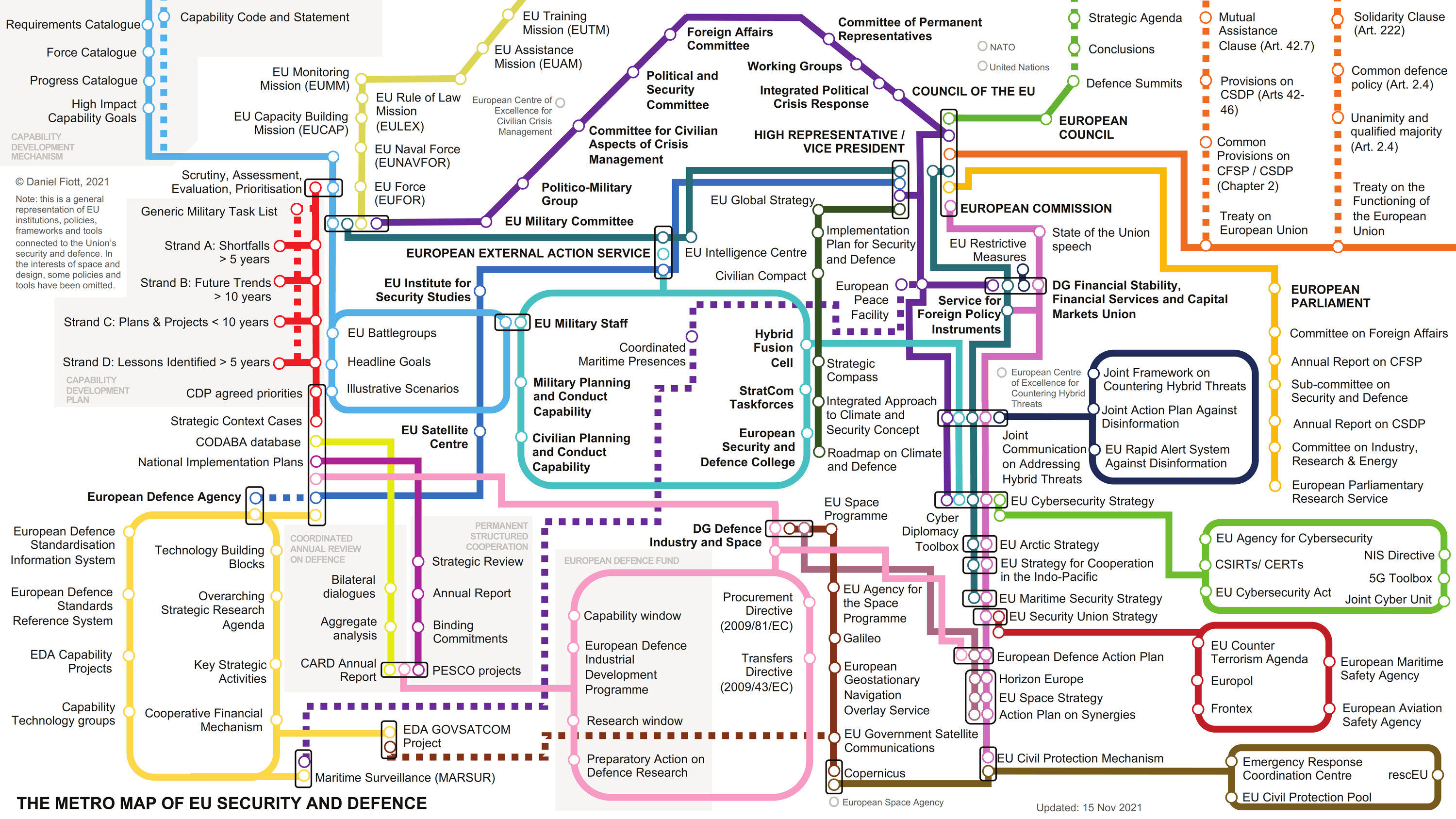
Europe should have had a functional defense mechanism. It doesn’t. All it has is an inept bureaucracy.
🎥 Pour approfondir : ARTE : Russie-Ukraine : l’Europe sait-elle se défendre ? Leçon de géopolitique du Dessous des cartes. (Short answer: not really!)
The real traitors of Europe
Well, the politicians who negotiated with Vladimir Vladimirovich in the last 20 years could be considered traitors, but it’s not about them. This is about those Western intellectuals and politicians who still support Putin.
To make things clear: I myself considered that America’s interference in Europe’s affairs, and EU’s subservience to the United States, via NATO or otherwise, is a bad thing. Let’s not forget that it was NATO who bombed Belgrade in 1999. Also, based on the previous blatant lies about Saddam Hussein’s non-existent WMD, I thought—alongside many people, including major analysts—that Putin won’t invade Ukraine, and that America is exaggerating.
I was proven wrong.
Many honest people, some of them experts, have been proven wrong. Quick example: Guerre en Ukraine : ces “experts” qui assuraient que Poutine n’attaquerait pas. “Jusqu’au bout, ces “spécialistes” de la Russie ont nié la possibilité d’une invasion de l’Ukraine.” The article mentions Hélène Carrère d’Encausse (historienne, secrétaire perpétuel de l’Académie française), Renaud Girard (chroniqueur international au Figaro), Vladimir Fédorovski (ancien diplomate soviétique d’origine ukrainienne, spécialiste de la Russie), all reputable people. (Fédorovski: « Dire que la Russie veut envahir l’Ukraine est un mensonge ».)
But while most people whose expectations were not met admitted their wrong assessment of the psychopathic Putin, some persist in their error. Many such people are probably on Moscow’s payroll, or just plain idiots.
I don’t know what Gerhard Schröder, Putin’s business friend, is doing these days (I hope he dies in pain due to a colorectal cancer!), but another immoral politician, François Fillon, since December 2021 a member of the Board of SIBUR Holding, the largest integrated petrochemical company in Russia, and also in the Board of Zarubezhneft, a Russian state-controlled oil company, announced his resignation. However, this jerk is the supreme idiot:
- On Feb. 23, on FB and on Twitter, he insists that NATO is the culprit: “In 2014 I regretted the conditions of the annexation of Crimea and today I condemn the use of force in Ukraine. But for ten years I have been warning against the refusal of the West to take into account Russian demands on the expansion of NATO. This attitude leads today to a dangerous confrontation that could have been avoided.”
- On Feb. 27, he pretends to condemn Putin in the Journal de Dimanche—see the article on Twitter and on FB.
An imbécile and a traitor, but not the only one.
I was following these days the reaction of some major French politicians, especially those “anti-Establishment”; here’s a partial list of reactions:
- Jean-Luc Mélenchon condemned Putin’s invasion of Ukraine, but still insists that it’s NATO’s fault: “Depuis 2014, je répète sur tous les tons qu’on n’humiliera pas durablement la Russie en continuant à faire avancer l’Otan à toutes ses portes. C’est un danger qu’ils n’accepteront jamais. Nous n’avons jamais dit autre chose. Nous avons dénoncé ceux qui étaient responsable de cette situation parce que nous ne sommes pas alignés.” Later, this retard expressed his regrets for the supply of arms to Ukraine by the EU.
- Marine Le Pen condemns Putin, but otherwise she cannot hold back her admiration for him: “Poutine n’est pas du tout un fou. Il est brutal et impressionnant”; “Mon inquiétude, c’est qu’on voit la Russie se tourner vers la Chine”.
- Florian Philippot: “Les Français ont bien plus à craindre de Macron que de Poutine !” (“Et je signe et persiste !”)
- The trotskyist Nathalie Arthaud fully supports Putin’s invasion of Ukraine! Watch this video excerpt. It’s unbelievable…
- Éric Zemmour condemns Putin, but insists that there is a need for a peace treaty marking the end of NATO’s expansion to the East. On Feb. 28 (La Grande Interview d’Eric Zemmour sur RTL), he insists on this distinguo: “Le coupable, c’est Poutine ; le responsable, c’est l’OTAN, qui n’a pas cessé de s’étendre.” Then… “Poutine est un démocrate autoritaire.” (sic!)
- François Asselineau has a long diatribe (as usual) on UPR TV, Le conflit OTAN/Russie en Ukraine, in which he presents in great detail the history of Ukraine (from a Russian perspective!), and insists (what a surprise!) that… you guessed… the root cause is NATO’s stubborness of going East. On Feb. 26, he kept going on with his ideas, comparing Ukraine with Cuba’s 1962 missile crisis, Ukraine’s invasion with the invasion of Iraq, etc.
Note that the French public seems equally ambivalent: 96% believe Putin to be guilty, but 68% consider that NATO bears a part of responsibility too! Bloody Frogs.
Si 96% des français jugent que #Poutine est responsable, 68% considèrent que l’OTAN porte également une part de responsabilité. Dont 82% des proches de #LFI, 78% des proches d’#EELV et 66% des proches du #PS.
Voilà un sondage qui devrait faire réfléchir les donneurs de leçons. pic.twitter.com/M9WFZNLLIx
— Manuel Bompard (@mbompard) February 27, 2022
The retired French Army general and military theorist Vincent Desportes, otherwise relatively intelligent, upholds that NATO increases tensions in Europe. But while saying that the European countries are enslaved to the United States, he’s not just the typical Frenchman, traditionally a hater of Uncle Sam; he also insists that the false belief that Uncle Sam will take care of everything made Europe weak in terms of military equipment, which is true! (Thankfully, as he admits, the Russian army disappoints.)
Well, indeed, I too understand that Russia, even with a democratic governance, is entitled to a degree of anxiety when an ever-increasing military alliance approaches its frontiers. A unipolar world is unhealthy, as it’s monopolistic, and the respective monopoly’s name is not UN, but NATO. But you can’t create “competition” in the security field by invading other countries!
INTERLUDE (by the way, it’s funny how the English spelling entr’acte is more sensible than the French modern spelling entracte; before WWII, the French were still spelling it entr’acte, as a proof that what they call “French language” is now but a lame remnant of the “true” French of the old days): what should I think when Scott Ritter, former US Marine Corps intelligence officer, also US weapon inspector in the USSR in 1988, then UN weapons inspector in Iraq from 1991 to 1998, writes on RT articles such as these? Ukraine’s nuclear fantasy is dangerous (Feb. 20); Why a war may be the only solution Americans can bring to this conflict (Feb. 23). He deems Michael McFaul incompetent, and he swears by Jack F. Matlock Jr., who indeed has a much longer experience with Russia and the USSR, having been since 1971 Director of Soviet Affairs in the State Department before becoming Ambassador to the Soviet Union. Nowadays, despite not writing for any Russian state media, Matlock claims that “NATO[‘s] expansion was the most profound strategic blunder made since the end of the Cold War,” and that “after all, what Putin is demanding is eminently reasonable. He is not demanding the exit of any NATO member and he is threatening none.” Here’s the short version of the article: I was there: NATO and the origins of the Ukraine crisis; and there is a longer one on the site of the American Committee for US-Russia Accord (ACURA). Apparently, ACURA is not “sold to the Russians,” as it also links to articles “in condemnation of Russia’s flagrant breach of international law, and in support of immediate sanctions,” who explain “why the Kremlin will seek regime change in Ukraine,” obviously to “replace the Ukrainian government with Russian puppets, and draw up a new Ukrainian federal constitution by Russian diktat.” Can we still trust anyone to be honest, and not to start criticizing Putin only after Russia invades another country? (Not counting 2008 and 2014.) End of the interlude.
As I said, some people still lack any intellectual honesty, and they’re still supporting Putin, even as the Ukrainian tragedy is developing. Régis Chamagne, expert en géostratégie, ancien colonel de l’armée de l’air, sur RT France: “La Russie n’a pas grand chose à craindre des sanctions”. Alexandre Del Valle, géopolitologue, sur Sud Radio: “C’était une folie de diaboliser la Russie dans les instances internationales”. Romain Bressonnet, secrétaire général du Cercle Aristote et auteur de Poutine par lui-même, sur Sud Radio: “On a laissé faire le régime de Kiev et on va le payer très cher”. This is unreal!
On a slightly different note, Matteo Salvini asks Italy and Europe “not to distribute lethal weapons on the border with Russia, but to follow the path indicated by the Pope: humanitarian corridors and diplomacy”.
Oh, I forgot to insert one excerpt from Zbigniew Brezinsiki’s book The Grand Chessboard. American Primacy and Its Geostrategic Imperatives (1997). It was mentioned by François Asselineau, and it can be simplified as follows: “With Ukraine, Russia is an empire. Without Ukraine, Russia is a has-been.” But here’s the original quote:
Ukraine, a new and important space on the Eurasian chessboard, is a geopolitical pivot because its very existence as an independent country helps to transform Russia. Without Ukraine, Russia ceases to be a Eurasian empire. Russia without Ukraine can still strive for imperial status, but it would then become a predominantly Asian imperial state, more likely to be drawn into debilitating conflicts with aroused Central Asians, who would then be resentful of the loss of their recent independence and would be supported by their fellow Islamic states to the south. China would also be likely to oppose any restoration of Russian domination over Central Asia, given its increasing interest in the newly independent states there. However, if Moscow regains control over Ukraine, with its 52 million people and major resources as well as its access to the Black Sea, Russia automatically again regains the wherewithal to become a powerful imperial state, spanning Europe and Asia. Ukraine’s loss of independence would have immediate consequences for Central Europe, transforming Poland into the geopolitical pivot on the eastern frontier of a united Europe.
That has been said in 1997! 🧐
💡 Some probable consequences of the Ukrainian war, in my opinion:
- The “anti-Establishment” politicians, journalists, and “experts” that are obviously Putin’s brainwashed puppets have disqualified themselves forever, and most “anti-system” European political parties will lose whatever credibility they still had! (That’s actually bad for Europe, as some of the criticism expressed by these “extremists” were justified; without criticism, the EU cannot reform itself.)
- Emmanuel Macron will win a second Presidential mandate hands down, despite being fooled by Putin; the upcoming elections are a pure formality.
- Many anti-NATO Europeans will suddenly reconsider their stance, especially as the EU security mechanism is a joke. Europe could and should have had a security alliance not involving the US (read: not ruled by the US), but apparently it’s too dumb to do that. (More important things were on EU’s agenda: Fridays for Future, the all-electric automotive plans, whatever extra rights can be invented for the transgenders, and other woke-like stuff.)
- The EU will be forced to acknowledge that patriotism and national feeling do not mean nationalism, jingoism, xenophobia. Without a people with a strong conscience of the national identity, Ukraine would have been swept away by the Russian invasion in 24h hours! It’s time for the UE to stop trying to mimic the USSR, and to stop pretending that people of the member states should feel “Europeans” before anything else! Without strong nations, Europe will be a doormat for whoever wants to abuse it.
- Today, most Europeans seem tolerant with their rulers, but once the crisis fades, it will come the time for the complicit politicians to pay for their criminal, anti-European acts. Europe is weak, corrupt, and in part sold to the Russians and to the Chinese.
In the long run though, I hope Europe will manage to reform its institutions, which are more than inept, corrupt, and harmful.
Let’s also not forget that The world is united on Ukraine, [but] divided on America:
The two major Asian nations, China and India did not sharply condemn the Russian attack, nor did large African nations like Nigeria, South Africa, and Egypt.
Brazil also wavered until it succumbed to US pressure to vote in favour of the UN Security Council condemning the Russian invasion on February 25. And while 11 out of 15 UN Security Council members did vote in favour of the resolution, many states stopped short of unequivocal condemnation and most just called for the cessation of violence and return to negotiations.
All of which begs the question, why? …
The short answer: it may have less to do with Ukraine and more to do with America. There is fear and suspicion among nations of being dragged into another Cold War showdown between the US and Russia. Kyiv may be the victim and Moscow the aggressor, but in the eyes of many, Washington is not totally innocent in all of this.
As the self-appointed “world policeman”, the US stands accused or at least is seen to interfere in the internal affairs of other states under different pretexts, including in and around Russia and China.
It is also been accused of double standards when it comes to aggression, occupation and international law violations – one for allies and another for the rest, just as was the case during the Cold War.
Then,
Since the end of the Cold War in the late 1980s, most states have diversified their economic and military relations with world powers and prefer not to choose between Russia and the US or between the EU and China.
Many countries are also looking out for their own interests amid the geopolitical polarisation, and some are dependent on Russia for wheat, energy, and military hardware or on China for investments, loans and trade.
Last but not least,
And yet for decades, the US has repeatedly demanded nations get behind it in crisis times or pay the price. “You are either with us or against us,” warned US President George W Bush on the eve of his “global war on terror” following the 9/11 attacks on New York and Washington.
And soon after the US designated Iran, Iraq and North Korea the world’s “axis of evil” and prepared to invade Iraq, it demanded that nations take its side or incur its wrath.
The following decade, Washington raised pressure on China and demanded of all its trading partners to get behind it or face the consequences.
Should I remind you how much China has invested in Africa and Latin America? The US and Europe will bear the consequences of their blindness.
Not Nazis and drug addicts, but there’s a thing we should talk about
Putin is a pathological liar, but the major news outlets avoided explaining some of his assertions, probably assuming that they sound absurd enough, so they don’t need any clarification.
Well, the one about the “denazifying” of Ukraine deserves a few words, because it’s a delicate issue.
➡️ First, this crappy nonsense propaganda article by Sputnik, What Did Putin Mean by ‘Denazification’ of Ukraine and Why is It so Important?, mentions the volunteer battalions “Tornado” and “Aidar”; unfortunately, they existed:
- The Ukraine Crisis Media Center (NGO supported by USAID, NED, EED, NATO, UNICEF, German Marshall Fund/Black Sea Trust, UNHCR, International Renaissance Foundation, GIZ, Embassies of the US, Netherlands, Switzerland, Finland, Norway, Sweden and Germany, Spirit of America, Heinrich Boll Stiftung, the Institute for Statecraft, Estonian Center for Eastern Partnership, European Values Think Tank, and others) has this synopsis from 2017: What you need to know about the case of former Tornado battalion servicemen. Note that the Tornado detachment incorporated volunteers from the Shakhtarsk and Azov battalions. They were prosecuted and sentenced, but they were indeed responsible of acts of torture, sodomy, and other crimes.
- On September 8, 2014, Amnesty International issued the report Ukraine: Abuses and war crimes by the Aidar Volunteer Battalion in the north Luhansk region, accompanied by a news release: Ukraine must stop ongoing abuses and war crimes by pro-Ukrainian volunteer forces.
- Hopefully not altered by Russian trolls, the Wikipedia page for Special Tasks Patrol Police of Ukraine lists under “Former special police units” the “Shakhtarsk” police battalion and the “Tornado” police battalion.
➡️ Then, the French public service France Info (France Télévisions, Radio France, France Médias Monde and the Institut national de l’audiovisuel) had the other day this feature: “Génocide”, “dénazification”… Comment Vladimir Poutine réécrit l’histoire pour justifier la guerre en Ukraine. It mentions Pravyi sektor (Right Sector),
which fought in the Donbass and was reintegrated into the regular Ukrainian army. Some of its members had a Nazi ideology, but they were dismissed by President Zelensky, explains Carole Grimaud-Potter, professor of Russian geopolitics at the University of Montpellier.
➡️ Thirdly, the French TV station TF1 INFO has this article, written by Caroline Quevrain, a journalist member of Les Vérificateurs (fact-checkers): Ukraine : quel est ce régiment Azov, accusé d’être néonazi ? It’s about the Azov Special Operations Detachment (Azov Battalion), which Wikipedia describes as follows:
a right-wing extremist and neo-Nazi Ukrainian National Guard unit, based in Mariupol, in the Azov Sea coastal region. It saw its first combat experience recapturing Mariupol from pro-Russian separatists forces in June 2014. Azov initially formed as a volunteer militia on 5 May 2014 during the Ukrainian crisis. On 12 November 2014, Azov was incorporated into the National Guard of Ukraine, and since then all members are contract soldiers serving in the National Guard of Ukraine.
From TF1 INFO’s feature, I translated the following:
The Azov battalion, named after the sea bordering Ukraine, does exist in Ukraine. The first traces of it are officially found in May 2014, a few months after Moscow annexed Crimea. At the time, this battalion was composed of some 800 Ukrainian volunteers, all of whom were mainly from the Russian-occupied East. It was only after its integration into the National Guard in late 2014, which was sorely lacking in men at the time (about 6,000), that the regiment gained some visibility in the country. “Today, the Azov unit is a special unit within the Azov 3057 military unit of the Ukrainian National Guard,” reads the official Azov website.
This implies that to date, Azov is directly subsidized and armed by the Ukrainian Ministry of the Interior, having been financed by the powerful oligarch Ihor Kolomoisky. However, its troops are regularly accused of affinities with Nazism. A number of elements point to direct and indirect links with this ideology. First of all, the image of a group of Azov soldiers photographing themselves in military garb accompanied by a Nazi flag has been circulating for several years on social networks and has re-emerged in recent weeks on Facebook or Reddit. It is also found in the Italian press.
Beyond this image, which is unambiguous, the emblem adopted by the battalion maintains the doubt. Azov uses the inverted “Wolfsangel” in the blue and yellow colors of Ukraine, which was the logo of the Ukrainian fascist party Svoboda and is none other than a symbol used by the second SS division during the Second World War. Its founder, Andriy Biletsky, who was awarded the Jubilee Medal and the Order of Courage, is now a deputy in the Rada, the Ukrainian parliament, under the name of the National Corps party. However, he does not hide his neo-Nazi past.
This does not mean, however, that the entire Azov regiment claims to be neo-Nazi. In 2015, the daily USA Today managed to obtain in Mariupol (East) the testimony of Alex, a member in charge of weapons training. During the interview, the latter then readily admits to being a Nazi, drawing parallels between the greatness of Ukraine and that of Germany at the time of the war. When questioned, a spokesman for Azov tries to minimize by indicating that this ideology gathers “only” 10 to 20% of the battalion. “I know Alex is a Nazi, but this is his personal ideology. It has nothing to do with the official ideology of the Azov Brigade,” Andriy Diachenko defends himself.
This is rather inconvenient. The aforementioned USA Today article from March 10, 2015, has a stunning title: Volunteer Ukrainian unit includes Nazis. Excerpts:
In an interview with USA TODAY, he admitted he is a Nazi and said with a laugh that no more than half his comrades are fellow Nazis. He said he supports strong leadership for Ukraine, like Germany during World War II, but opposes the Nazis’ genocide against Jews. Minorities should be tolerated as long as they are peaceful and don’t demand special privileges, he said, and the property of wealthy oligarchs should be taken away and nationalized.
He vowed that when the war ends, his comrades will march on the capital, Kiev, to oust a government they consider corrupt.
…
Col. Oleksiy Nozdrachov, a member of the Ukrainian Armed Services’ General Staff in Kiev, defended the brigade’s members as patriots. “They are volunteers who decided to sacrifice their lives to the country,” Nozdrachov said. “They are tough and fierce in battle who stand and fight and won’t give up soil.”
He conceded that abuses by the brigade could hurt the nationalist cause among residents. “If any cases of misbehavior by Azov Brigade are brought by the local population, it will be investigated,” he said.
…
The brigade’s recruits, ranging from teens to middle-aged men, come from the separatist-held eastern Ukrainian cities of Donetsk and Luhansk, the central city of Kirovograd and the former Soviet republic of Belarus. Several said they want to protect their homeland and Europe from the ambitions of Russian President Vladimir Putin, whom they blame for the war.
Alex Borisov, 44, a trainer for Ukraine’s military, said he spent two weeks teaching shooting and tactics to a group of brigade members who speak mostly Russian.
“I didn’t see any fascists or anti-Semites,” Borisov said. “And I tell you this as a Jewish guy.”
These “facts from the past” might explain why the West was reluctant to help Ukraine in 2014-2015. And then… they just forgot about it.
By the way, our honorable François Asselineau, as a great fan of Putin’s as he is, posted on Feb. 23, 2022, a tweet about “the Azov regiment… advised by NATO!”
This being said, the issue should have been explained in the mainstream media these days, out of fairness.
➡️ Back to Vladimir Vladimirovich, I was stunned to find out that the “little green men” that came from Mars to Crimea in 2014 might have been more than a mix of Spetsnaz units. On January 22, 2022, the French/German public TV channel ARTE had this documentary: Le Groupe Wagner en Ukraine et au Mali – Leçon de géopolitique – Le Dessous des cartes (also on the official site).
The soldiers of the Wagner group are mercenaries who operate in several countries around the world to further Russia’s geopolitical ambitions. What role did they play in the annexation of Crimea and the war in Donbass? What are they doing in Libya? In the Central African Republic? In Mali?
Ouch. It’s even on Wikipedia:
The Wagner Group (Russian: Группа Вагнера, romanized: Gruppa Vagnera), also known as PMC Wagner, ChVK Wagner (ChVK being the Russian abbreviation for Private Military Company), or CHVK Vagner (ЧВК Вагнера ChVK Vagnera, Частная Военная Компания Вагнера), is a Russian paramilitary organization. Some have described it as a private military company (or private military contracting agency), whose contractors have reportedly taken part in various conflicts, including operations in the Syrian civil war on the side of the Syrian government as well as, from 2014 until 2015, in the war in Donbas in Ukraine aiding the separatist forces of the self-declared Donetsk and Luhansk people’s republics.
Others, including reports in The New York Times, are of the opinion that ChVK Wagner is an arms-length unit of the Russian Ministry of Defence (MoD) and/or the GRU in disguise, which is used by the Russian government in conflicts where deniability is called for, as its forces are trained on MoD installations. It is believed to be owned by Yevgeny Prigozhin, a businessman with close links to Russian President Vladimir Putin.
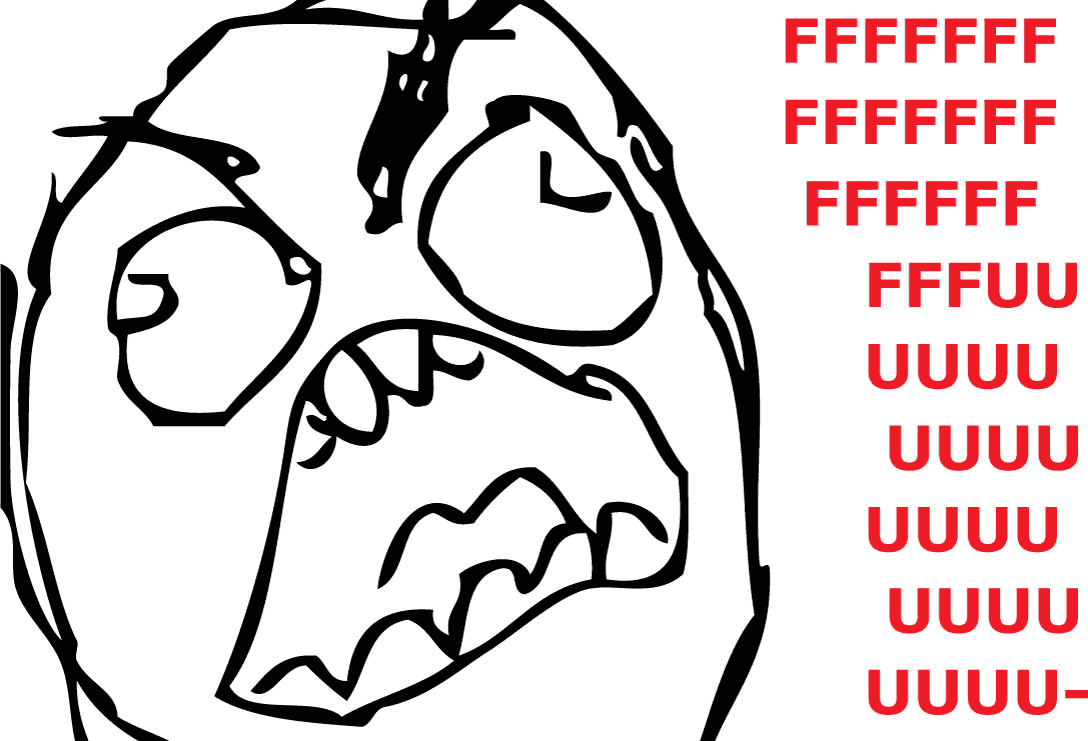
We don’t know much with certainty about the Wagner group, except that it has been founded by a former Spetsnaz lieutenant colonel and brigade commander, and that the boys have been very busy.
The Wagner Group has also been compared with Academi, the American security firm formerly known as Blackwater.
What I don’t understand about this thing is in what way are they “private” contractors, as long as they are subordinated to the GRU and to the MoD? They don’t seem to be a private security company à la Blackwater or Triple Canopy. It must be something pour les connaisseurs.
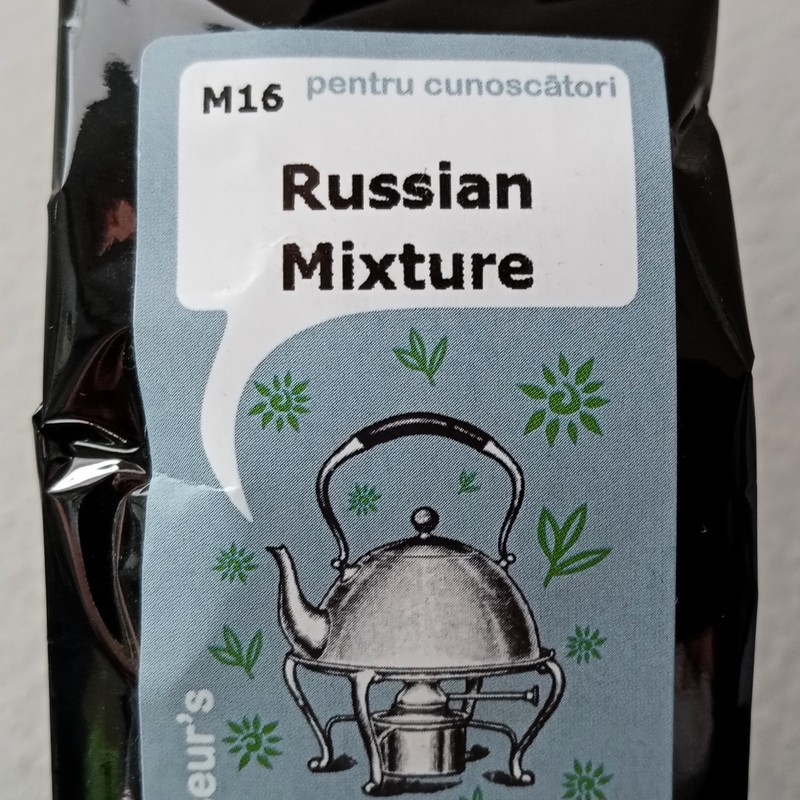
➡️ Finally, let’s avoid the McCarthyism and unjust persecution. There are such examples: Russian Conductor Valery Gergiev Dropped by Carnegie Hall, for having “close ties to Russian President Vladimir Putin”; then, after failing to publicly condemn Russia’s invasion, he was also dropped by Italy’s La Scala of Milan. Previously, Gergiev was booed during the opening performance of “The Queen of Spades” on Feb. 23. On the positive side, the Vienna Philharmonic has issued a statement noting,
The Vienna Philharmonic has had an artistic partnership with Maestro Gergiev for decades. That is absolutely in the foreground. Culture must not become the plaything of political disputes. Therefore we will not comment on political issues related to our conductors or soloists. For us, music always has something that connects us and not separates us. We condemn any kind of violence and war.
Just a reminder: Richard Wagner and Adolf Hitler were two distinct individuals!
Either way, for the time being…
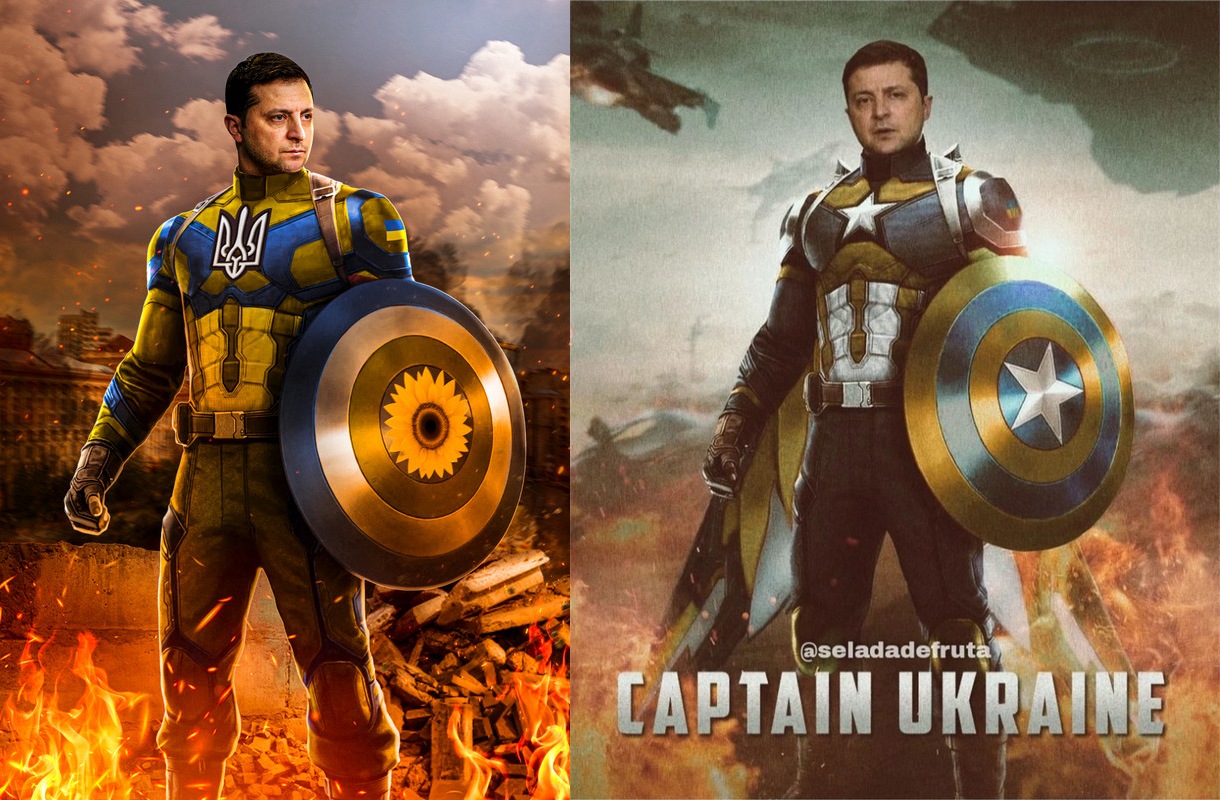
💡 Oh, wait! You could watch the original, make-believe president, in the series Servant of the People (Sluga narodu)! Quelques détails sur la vie d’avant du Président ukrainien.

- FR/DE subtitles, Season 1 (23 episodes), ARTE: 🎥Serviteur du peuple / 🎥Diener des Volkes.
- EN subtitles for some episodes of Season 1 (🎥here), for the combined episodes 1+2 of Season 2 (🎥here); no subtitles at all (not even Russian!) for Season 3 (🎥here)
- EN subtitles for the full-length feature movie 🎥Servant of the People 2 (2017)
Putin to Sarkozy in 2007: “If you go on like this, I will crush you.”
The 33rd G8 summit, held in 2007, was the first summit for French President Nicolas Sarkozy. After having met with Vladimir Putin, the French President exhibited an extremely strange behavior during the press conference. Some believed Putin gave him too much vodka, forgetting that neither of them are known to drink. Some others, less prejudiced, suggested that Sarkozy had a hypoglycemia attack. But the already mentioned documentary by the public television France 2, Le mystère Poutine (2016), comes with a totally different scenario.
You can watch this hypothesis in the below excerpt (click to activate), or in a number of places ([1], [2], [3], [4], [5]).
Poutine : C’est bon, t’as fini, là ? Bon, alors je vais t’expliquer. Tu vois, ton pays, il est comme ça.🤏 Mon pays, il est comme ça.🍆 Alors, maintenant de deux choses l’une : ou bien tu continues sur ce ton et je t’écrase, ou alors tu arrêtes de parler comme ça et tu verras. Tu viens juste de devenir Président de la France, mais je peux faire de toi le Roi de l’Europe.
I can understand that Sarkozy was under the shock of this Adolf-like behavior, but why didn’t he never tell anyone about this episode? To the US President, I mean.

Europe’s Energy Suicide
This is the second topic for which I had a long draft in works. Today, things are even more obvious than before, thanks to our Russian friends:
German Chancellor Olaf Scholz has issued an order to halt the process of certifying the Nord Stream 2 gas pipeline. Well. Welcome to the brave new world where Europeans are very soon going to pay €2.000 for 1.000 cubic meters of natural gas!
— Dmitry Medvedev (@MedvedevRussiaE) February 22, 2022
Europe was in a deep energy crisis even before the Russian invasion.
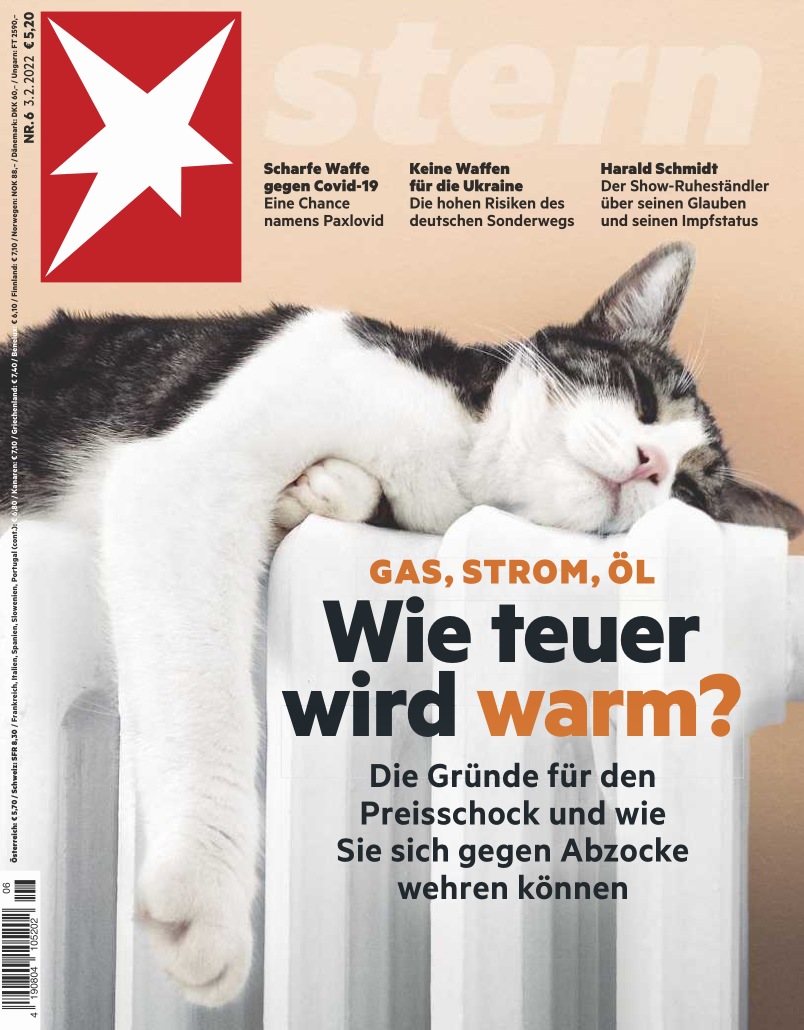
I really wanted to write a copious blog post on that, but I just gave up. Europe failed to properly plan its future, in an almost suicidal way, as this crisis is of our own doing. Here’s a summary from the down under, back from October: There is no quick fix for Europe’s self-manufactured energy crisis.
Some points I still want to make:
- ELECTRICITY: The “green transition” imposed by politicians as stupid as the most stupid young cunt of the planet, Greta Thunberg, which meant phasing out both coal and nuclear power, and relying on illusory “green” sources that require plenty of sun and wind (they failed to explain how would the sun shine at night).
- GAS AND ELECTRICITY: The “climate neutrality” imposed by the European Commission, but also by the United Nations Climate Change Conference, the Kyoto Protocol, the Paris Agreement and whatnot, which made the price of the “CO2 certificates” (carbon credits) rise abruptly.
- GAS AND ELECTRICITY: The corporate & governmental stupidity during the pandemic, which made them cancel long-term energy contracts and which prevented them from storing enough gas for the winter. When the economic activity restored to almost normal values, they claimed that “the recovery requires huge amounts of energy”—OBVIOUSLY, A LIE. The current energy consumption is NOT higher than before the pandemic! The industrial output is actually much lower than before 2020, with the chip crisis and other “supply chain issues”!
- ELECTRICITY: The general stupidity that has led to an increase in the cryptocurrency mining during this pandemic. Even the “legitimate uses” of the blockchain technology are requiring huge amounts of electricity and, will there ever be a blockchain-based Web 3.0, there won’t be enough energy on Earth to power it!
- ELECTRICITY: The increase in video streaming and other Internet/Cloud traffic that boomed during the pandemic increased the electricity consumption. I guess the old estimate that the Internet uses about 20% of the electricity produced on Earth is now obsolete, with the increased popularity of Zoom, Teams, etc., with the gazillions of YouTube videos (many in 2160p!) created during the pandemic, with the “everything in the Cloud” philosophy, and so on.
- GAS AND ELECTRICITY: The suicidal approach of the EU to “liberalize the energy markets” in the member countries the same way they did with the mobile telephony: even if the electricity lines and the gas pipes are the same as always, and even if the energy producers and the energy distributors are the same, the member countries have been forced to allow the creation of hundreds of fake “energy providers” in each country, so that people could “buy from cheaper suppliers”! The actual energy producers are forced by law to sell at least 25% of their production to such parasites, only to “increase the competition”! Such small “companies” (how should we call them?) don’t add any value to anything, they just engineer commercial plans to resell the energy they don’t produce, and to distribute it through networks they don’t own! Moreover, they don’t have the financial power to purchase in large quantities and on long-term contracts, therefore they purchase at the Gas Spot Price and Power Spot Price on the energy exchanges, which are now 500% to 800% higher than 12 months ago!
- GAS: The EU tried to impose an increased independence from the Russian gas WITHOUT HAVING AN ALTERNATIVE YET! Based on this policy, many countries did not conclude long-term contracts for gas with Russia (Hungary was one of the few countries that did, and they also have huge underground stocks of previously purchased gas). The EU has designed an energy plan based on increased liquefied natural gas (LNG) imports from the US (following the July 2018 Trump-Juncker agreement!), but IN THE MEANTIME the gas is purchased at spot prices, which are huge!
- GAS: While almost everyone still believed that Russia will never invade Ukraine, the political stance of the German regulatory agency Bundesnetzagentur, which has suspended the certification procedure for the Nord Stream 2 pipeline mid-November 2021 on ridiculous bureaucratic grounds, seemed absurd and subservient to the interests of the US. (Nord Stream 2 is fully functional and could have been made operational right away.)
- GAS: The political stance of the United States, which have cancelled their support for the EastMed natural gas pipeline that was meant to bring gas from Israel to Europe. They wanted to make sure Europe imports LNG from them!
All things considered, there is one thing I don’t understand:
- Alas, 40% of the natural gas in Europe comes from Russia. (Some 60-66% in the case of Germany.)
- Alas, Gazprom delivers 25% less gas than it used to (it might soon stop the deliveries altogether, but let’s stick to the pre-invasion logic). Arithmetic: 25% of 40% means Europe has 10% less natural gas than usual.
- Alas, the world economy has recovered, with industrial production in the EU slightly higher than before the pandemic.
- THEN HOW COME THE GAS AND THE ELECTRICITY already cost the end user 2-3 times more, and are expected to be 4-5 times more costly than before the pandemic? How is that even possible? ALSO, IS ELECTRICITY MADE OUT OF NATURAL GAS?!
Something simply doesn’t add up.
One last European idiocy: How can the carmakers go all-electric by 2035 when the electricity prices are double or triple already? Who is going to supply so much energy to hundreds of millions of electric cars, and how?
These are questions for later. Obviously, the 300 million passenger cars currently in Europe cannot be replaced by electric cars. The power grid couldn’t bear such a load. Remember when the Defense Minister of Austria examined the scenario in which Europe was heading for a continent-wide blackout? Such a blackout will happen in the next five years. The question is, what to do when everything stops? Oh, I know: we’ll store electricity in jerrycans!

I’ll get through it somehow. Based on what Russia is doing right now, if there’s going to be a tomorrow, I’m prepared.
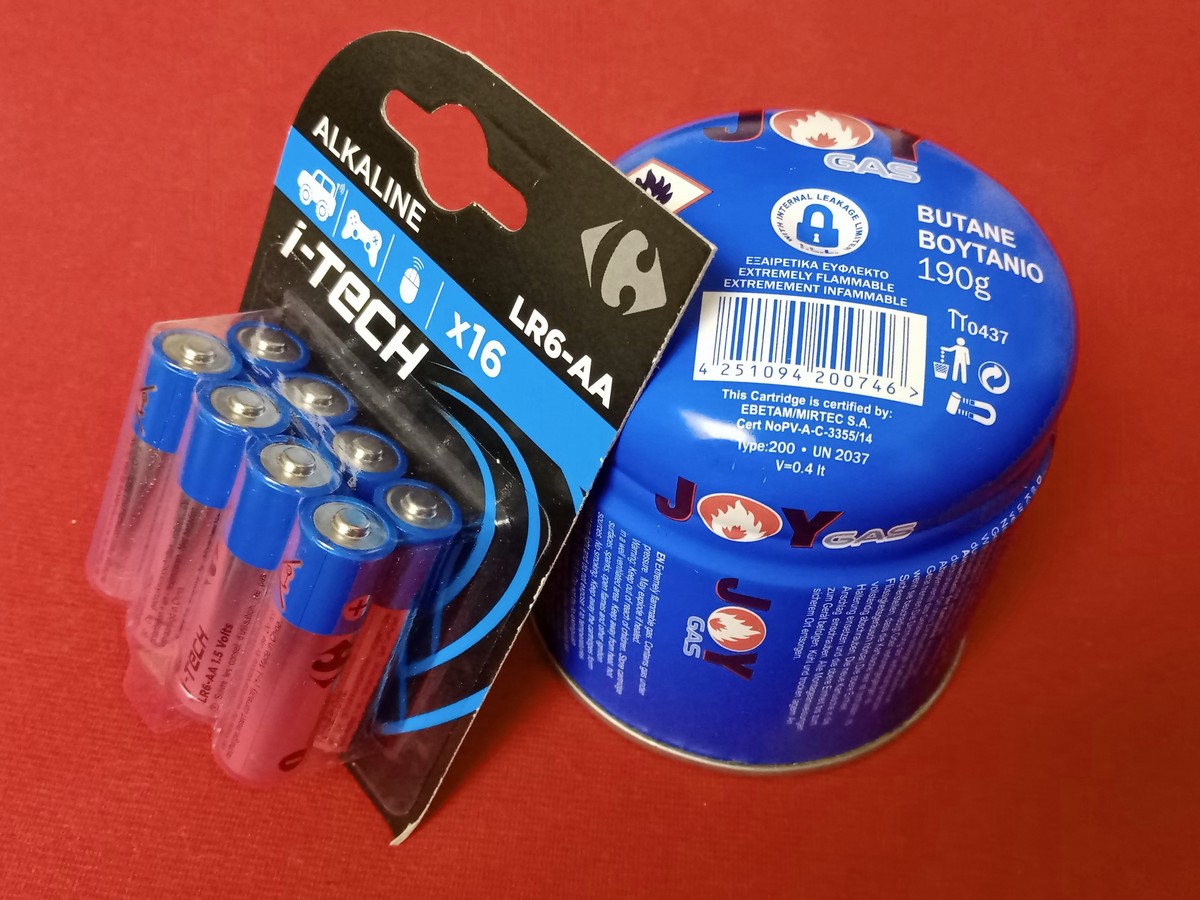
Covidiots everywhere
Another long feature I was writing since the beginning of the year, but I really don’t have any energy to write about shit.
➡️ People demonstrating against masks, against the digital COVID certificates and other restrictions, against “dictatorial governments” and “for freedom” (yeah, sure, you morons).
➡️ Authorities that eliminate the restrictions too fast, too early, simply because the Omicron variant seems to be prevalent, and because it generally doesn’t or shouldn’t put you in hospital.
But how do you know I’ll get Omicron? Delta is not dead yet, so I could as well get Delta!
Nobody fucking cares. After all, as Bill Gates said in a panel at the annual Munich Security Conference, The Omicron Variant Has Delivered More Immunity Around The World Than We Have Done With Vaccines.
BILL GATES: Sadly, the virus itself, particularly the variant called Omicron, is a type of vaccine. That is it creates both B cell and T cell immunity. And it has done a better job of getting out to the world population than we have with vaccines.
If you do surveys of African countries, something like 80% of people have been exposed either to the vaccine or to various variants. What that does is it means the chance of severe disease, which is mainly related to being elderly and having obesity or diabetes, those risks are now dramatically reduced because of that infection exposure.
It’s sad, we didn’t do a great job on therapeutics. Only here, two years in, do we have a good therapeutic. Vaccines took us two years to get to oversupply. Today there are more vaccines than there are demand for vaccines. And that wasn’t true. And next time we should try and make it instead of two years, we should try and make it like six months.
Certainly, some of the standardized platforms, including mRNA, would allow us to do that. It took us a lot longer this time than it should have…
QUESTION: Are we going to see another pandemic before we are able to beat this one?
BILL GATES: We’ll have another pandemic. It will be a different pathogen next time.
We’ll have some rebound. This pathogen we don’t have a tool to do eradication. We’d like to have a new generation of vaccines that would be suitable. Ideally, we’d get rid of families of respiratory viruses including the flu family and the coronavirus family.
And I do think in the next decade we can come up with an eradication vaccine. That’s an aspiration, not a guarantee, but we should be putting R&D dollars in that.
There’s already a lot of work that has been done on a universal flu vaccine and the data on that looks very promising.
So we’ll have rebounds, but they’ll be more typical seasonal flu levels, where of course we don’t generally shut things down. Although in the future, some degree of mask-wearing probably will be indicated. But we won’t get death levels at the kind of acute level we’re kind of experiencing today as the Omicron wave passes through on a global basis.
Screw them all. Including Didier Raoult, which in his videos is talking shit.
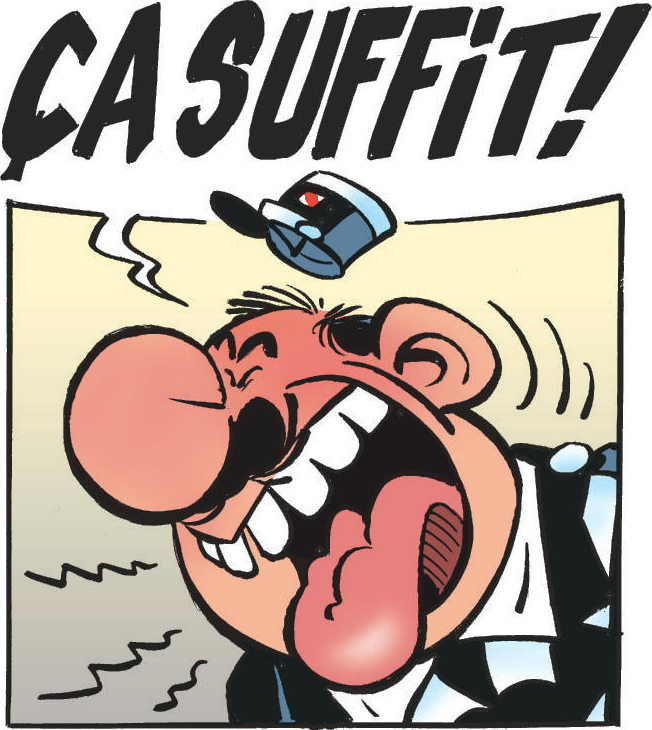
What is still bugging me is that I know of many people, here in South Germany, who experienced some kind of “brain fog” after the booster jab, or even after the second shot: difficulties with attention, concentration and memory, and extreme tiredness or somnolence.
I, too, have experienced this exhaustion combined with a lack of the ability to focus! It started a couple of days after the third jab, and I’not sure if it ended yet.
I would have accepted this syndrome as a long-COVID thing, but not as a “long vaccine” side effect, especially as the first two jabs gave me ZERO problems. As I said, fuck them all. Getting a third jab with the same obsolete vaccine developed for the Alpha variant when what I fear is Delta, and when what is prevalent is Omicron or its successor, is as absurd as getting the flu jab made for the 2018 flu season!
I also hear of more and more people getting infected with Omicron. Moderate symptoms, apparently. Will they have some form of long-COVID, or it will really be “just a cold that’s also a vaccine”?
💡 What I suggest to those experiencing an unexplained exhaustion and difficulties with focusing: check your T4 hormone levels! It is my theory that both the vaccine and the virus are slowing down some people’s thyroid. Therefore, I suggest people to take the following supplements:
- Selenium 50 µg to 100 µg per day
- L-Tyrosine (or, possibly with a better bioavailability, N-Acetyl-L-Tyrosine aka N-Acetyl Tyrosine) 1000 mg per day (750 mg in the case of the N-Acetyl form)
This might help. In my case it did: after a couple of days I was feeling almost a different person, but then the effect seemed to fade away. Well, in the current crisis the anxiety is rather high, so I don’t know what else is affecting me. (I’m also taking Taurine to prevent heart arrhythmias, and L-Tryptophan as a placebo antidepressant. And the regular vitamins C+Zn, D, and K, plus minerals: Ca+Mg+K.)
Who Doesn’t Want to Be a Millionaire?
That was another XXL blog post I still have in draft, but which will soon be deleted. It was supposed to deal with financial issues, from comments on the “Financial Independence, Retire Early” illusion, to considerations about investing e.g. in ETFs (Exchange-Traded Funds) and more.
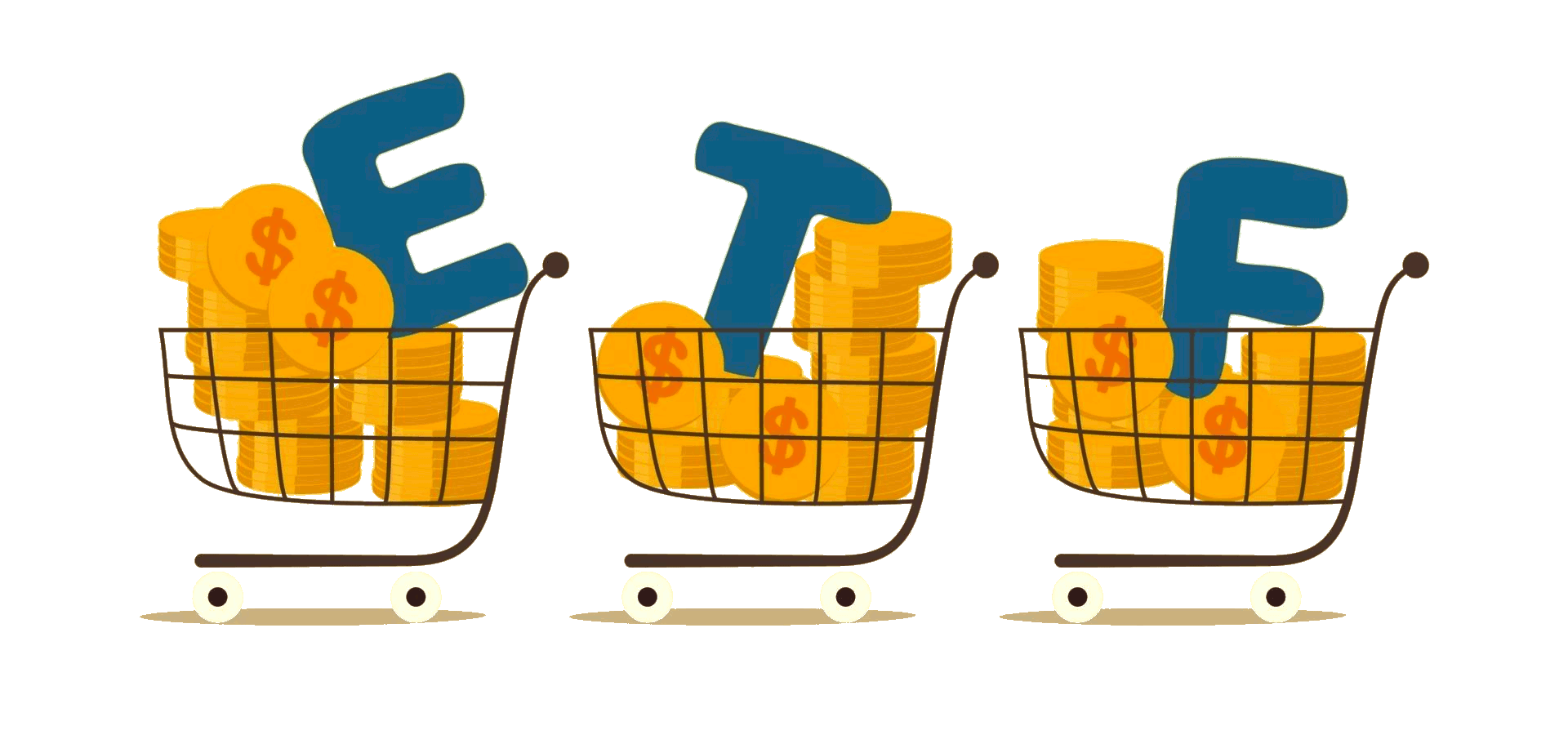
I started writing it end-June 2021, and I stopped writing in October, with a few updates in November. I thought it only 60% of what it should have been, and even so, it was 33 pages in print.
Frankly, it’s difficult to try explaining to the public the very concept I was just learning about. Hundreds of articles, dozens of magazines, a couple of books, countless websites in several languages. This Russian shit will change life enormously (if it won’t end it too soon for everyone), so I’ll have to check and recheck my shortlist of funds and stocks of potential interest, to see how they performed lately. The whole thing (project?) was frozen, and I blame it on my … post-jab “brain fog,” and also on my breaking the number one rule:
Once you start doing something, don’t stop until you finish it. Defer it, and you’ll never complete it. Procrastination only calls for more procrastination.
This being said, I’ve learned a lot, and I know more about what I don’t know, so I should go deeper into the subject. Unfortunately, as long as I don’t have much to invest, the possible earnings are marginal. Not everyone is Warren Buffett, eh?

Also, for regular people, it’s difficult to access some markets; what I mean is that it’s unpractical, too expensive or virtually impossible to purchase some values, being them funds or individual stock. Just search by WKN or ISIN in the web interface of your brokerage institution of choice and, as a European, you’ll discover the many limitations you never thought of! (And no, eToro is not a good choice!)
I also spent a lot of time trying to find the equivalence of the specific financial terms in English, German, French, and Romanian. Fuck, why can’t they all just use English when it comes to finance?!
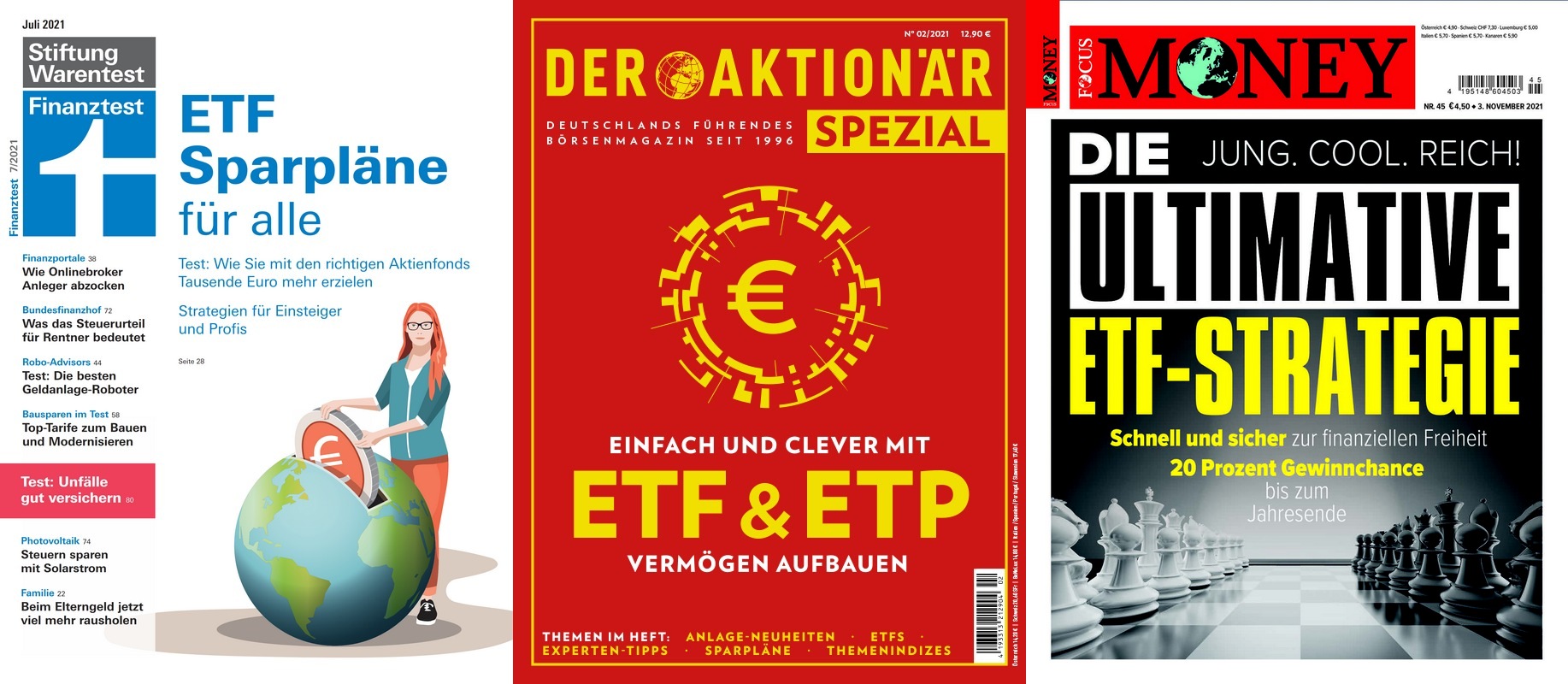



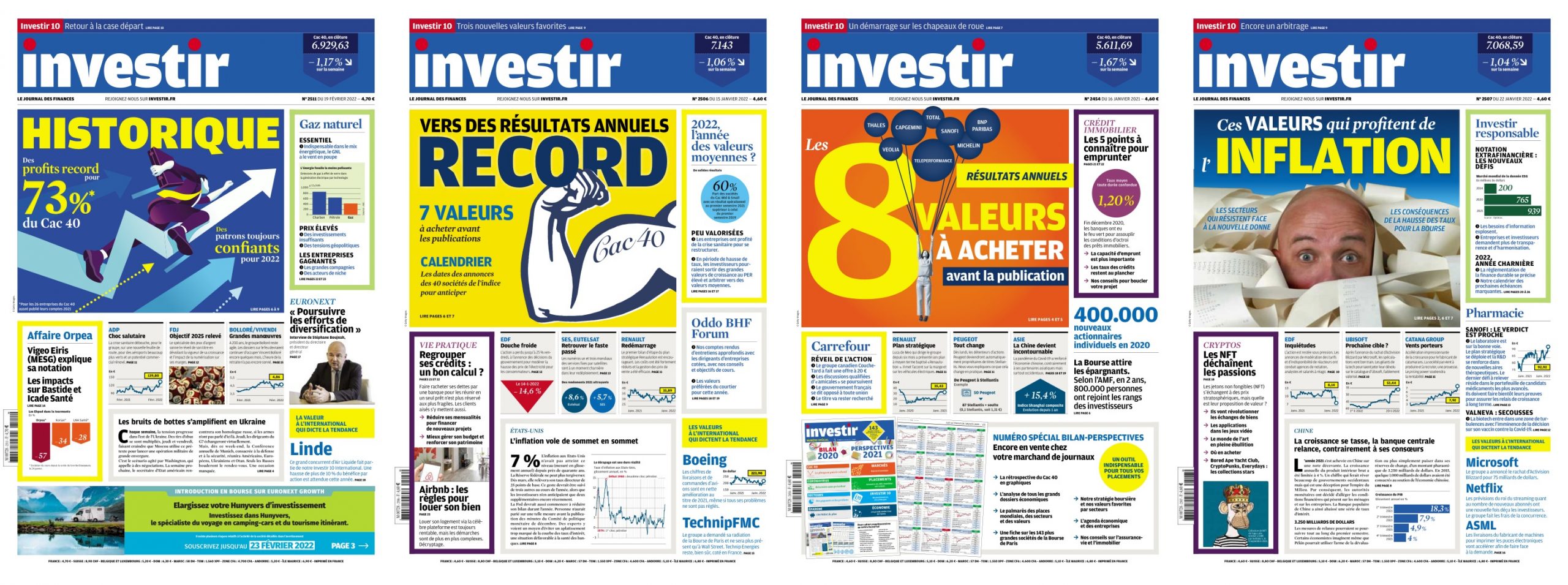
Nothing will be said on this blog about making money. I have no real competence in the matter, after all.
Other blog posts in the queue
I still have to organize my ideas and write several posts related to Linux. These, at least, are going to be written, because it’s the most neutral topic these days—and also the most natural. When using computers, what else to write about?
I will nonetheless abandon the idea of expressing my views on a number of topics that now seem futile. And I hate writing for the sake of letting the Universe know what I think about this or that. It’s pointless in a global tumult of social networks, YouTube narcissistic channels, Reddit and whatnot.
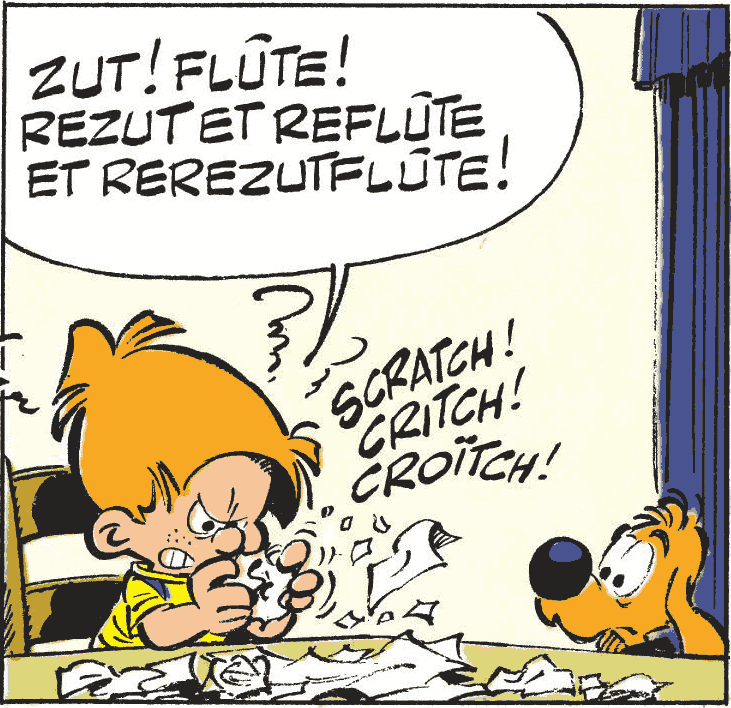
Instead of an EPILOGUE
Is there still hope, given that the mass-murderer and psychorigid (to quote Fédorovski) Putin behaves like Stalin? Maybe there is hope, when even some FSB people seem to have remnants of conscience and tip their Ukrainian counterparts.
But let’s cite from Yuval Noah Harari’s Why Vladimir Putin has already lost this war:
Putin’s dream of rebuilding the Russian empire has always rested on the lie that Ukraine isn’t a real nation, that Ukrainians aren’t a real people, and that the inhabitants of Kyiv, Kharkiv and Lviv yearn for Moscow’s rule. That’s a complete lie – Ukraine is a nation with more than a thousand years of history, and Kyiv was already a major metropolis when Moscow was not even a village. …
When planning his invasion of Ukraine, Putin … knew that militarily Russia dwarfs Ukraine. He knew that Nato would not send troops to help Ukraine. He knew that European dependence on Russian oil and gas would make countries like Germany hesitate about imposing stiff sanctions. Based on these known facts, his plan was to hit Ukraine hard and fast, decapitate its government, establish a puppet regime in Kyiv, and ride out the western sanctions.
But there was one big unknown about this plan. As the Americans learned in Iraq and the Soviets learned in Afghanistan, it is much easier to conquer a country than to hold it. Putin knew he had the power to conquer Ukraine. But would the Ukrainian people just accept Moscow’s puppet regime? Putin gambled that they would. After all, as he repeatedly explained to anyone willing to listen, Ukraine isn’t a real nation, and the Ukrainians aren’t a real people. In 2014, people in Crimea hardly resisted the Russian invaders. Why should 2022 be any different?
With each passing day, it is becoming clearer that Putin’s gamble is failing. The Ukrainian people are resisting with all their heart, winning the admiration of the entire world – and winning the war. Many dark days lie ahead. The Russians may still conquer the whole of Ukraine. But to win the war, the Russians would have to hold Ukraine, and they can do that only if the Ukrainian people let them. This seems increasingly unlikely to happen.
…
By spilling more and more Ukrainian blood, Putin is making sure his dream will never be realised. It won’t be Mikhail Gorbachev’s name written on the death certificate of the Russian empire: it will be Putin’s. Gorbachev left Russians and Ukrainians feeling like siblings; Putin has turned them into enemies, and has ensured that the Ukrainian nation will henceforth define itself in opposition to Russia.
…
Unfortunately, this war is likely to be long-lasting. Taking different forms, it may well continue for years. But the most important issue has already been decided. The last few days have proved to the entire world that Ukraine is a very real nation, that Ukrainians are a very real people, and that they definitely don’t want to live under a new Russian empire. The main question left open is how long it will take for this message to penetrate the Kremlin’s thick walls.
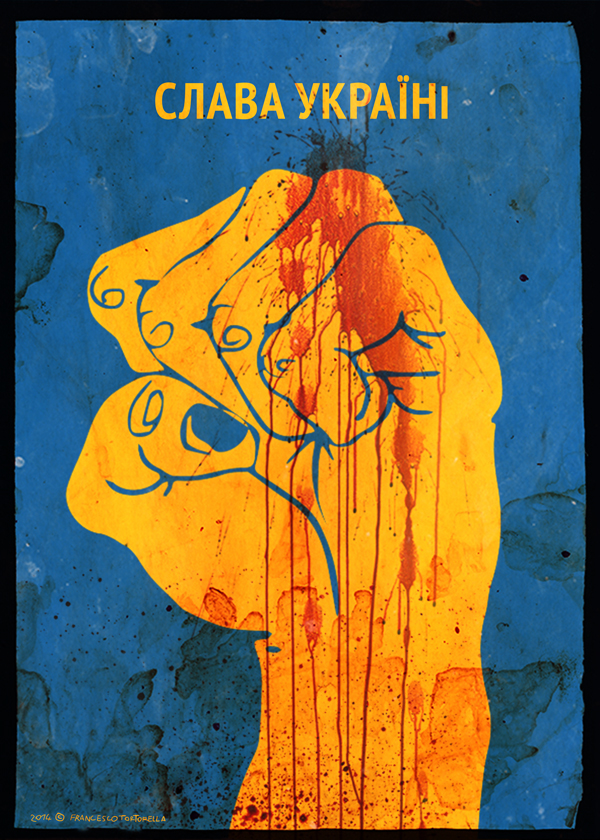

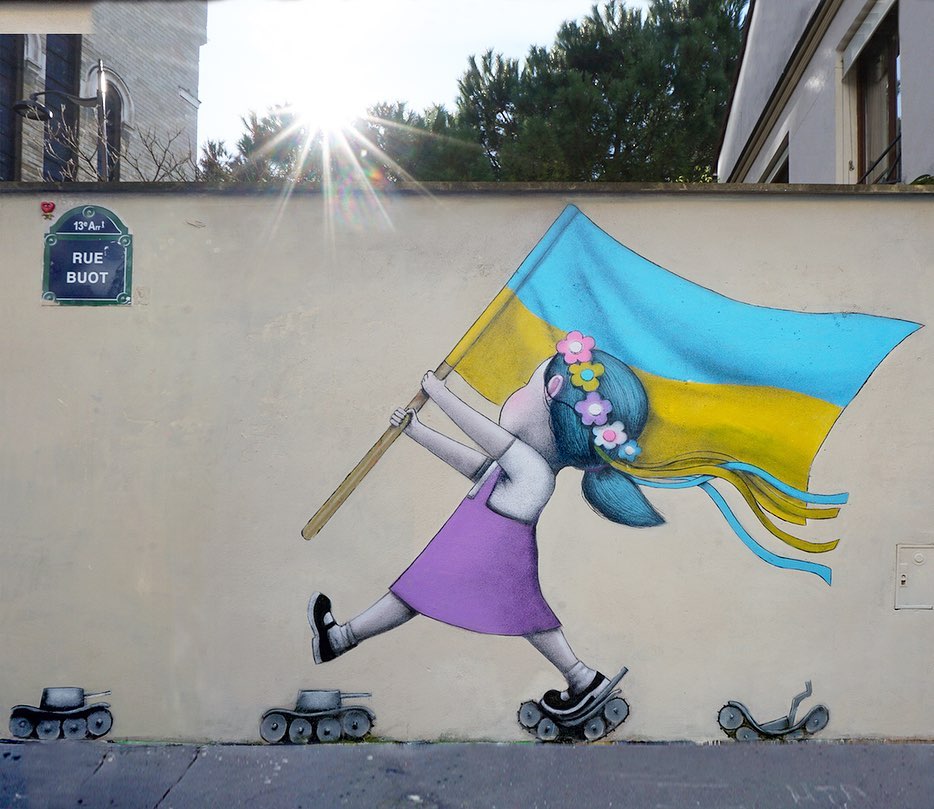
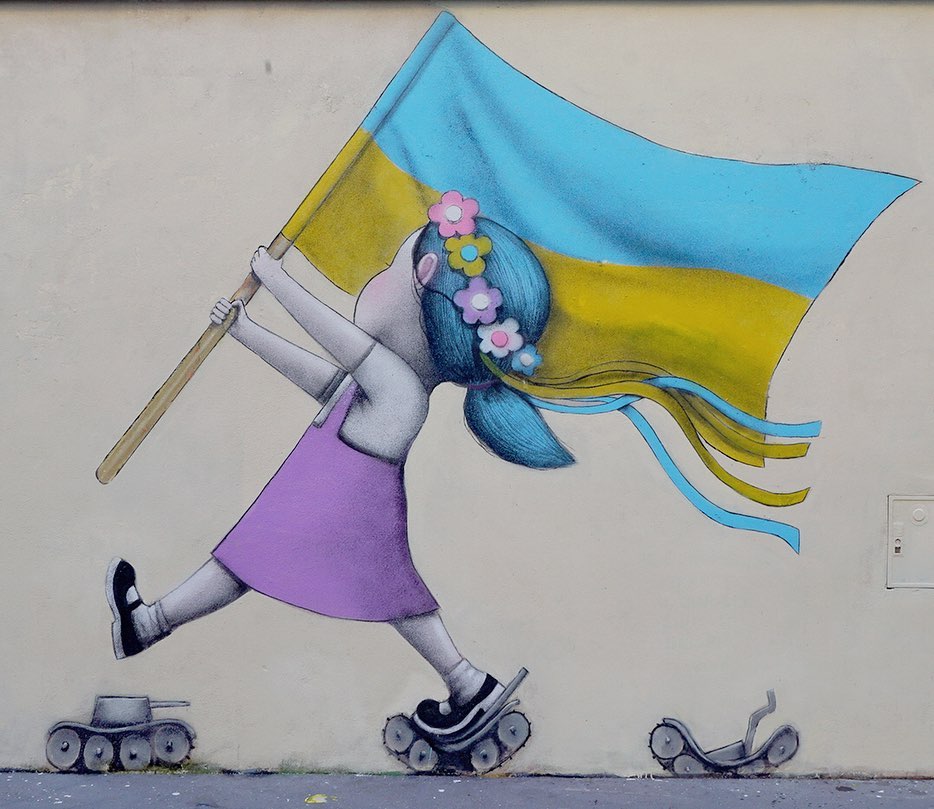
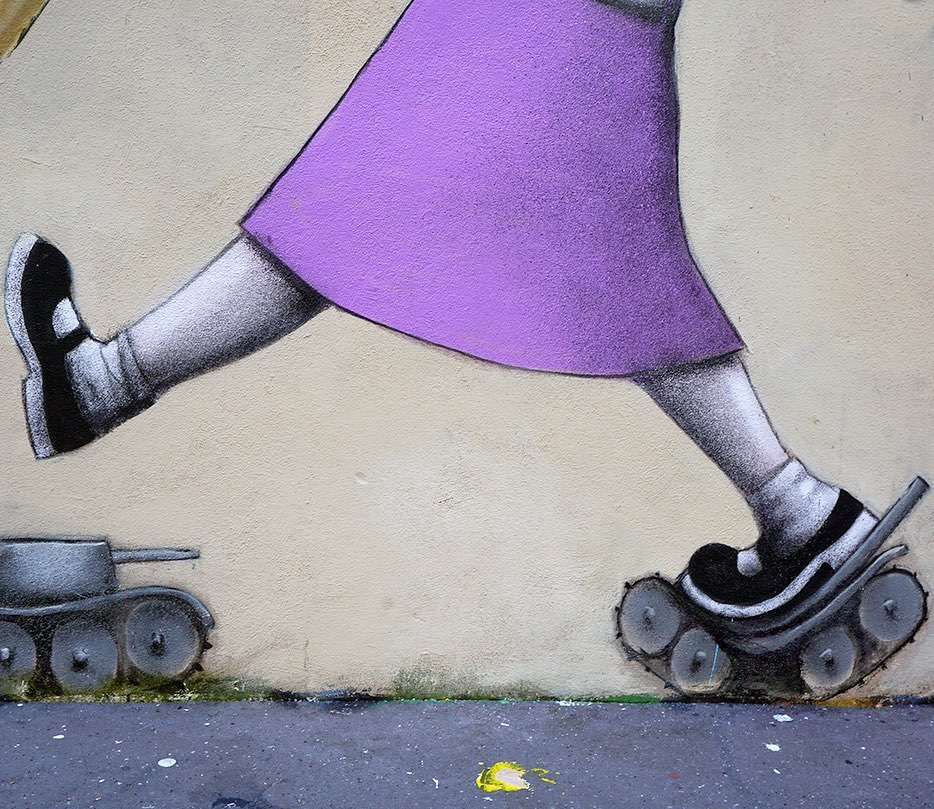


Bun post, maestre.
[UPDATE-01]
– France is behaving incomprehensibly. In the early hours of March 2, a police control in Paris identified 14 members of the French Foreign Legion in a bus departing for Poland. 9 were on authorized leave, but 5 were AWOL and considered deserters. But even those nine are now investigated! (Guerre en Ukraine : 14 légionnaires d’origine ukrainienne arrêtés cette nuit à Paris)
700 of the 9000 members of the Légion étrangère are of Ukrainian origin. 25 of them are AWOL. While the official policy is that there is a procedure allowing them to go look for their relatives, the reality is confusing. Instead of authorizing all 700 légionnaires to go fight for their country of origin, France is acting like complete morons! I’d have rather expected France to try a covert operation in Ukraine using these 700 légionnaires, but what we see is the contrary. Fuck you, Manu! Pauv’ con…
— How Russia could be removed from the UN Security Council. It’s Russia’s veto power that made the UN Security Council useless. While it’s legally difficult to remove Russia from the UNSC, despite its repeated violations of the UN Charter, a strict legal interpretation might conclude that Russia’s membership in the UNSC is already illegitimate, as the Constitution of the USSR did not contain any provisions on the replacement of the USSR in the international organizations with other subjects, and the “Moscow Treaty” (“Agreement on Succession of External Public Debt and Assets of the USSR”) does not have any provisions of the USSR being succeeded by the Russian Soviet Federated Socialist Republic in international organizations, including the UN Security Council.
Everyone was complacent since 1991, and this severely crippled the UNSC.
— “Les sanctions économiques n’ont jamais fait plier un dictateur”, estime l’historien Fabrice D’Almeida: “Jusqu’à preuve du contraire, jusqu’à aujourd’hui, il n’y a pas de pays qui a été mis à genou par des sanctions économiques”, a insisté l’historien, estimant que ces sanctions “manifestent seulement notre propre désir d’action et de volonté de lutter”.
— Ukraine: why the sanctions won’t topple Putin: Russia has known sanctions since 2009, and through the sanctions imposed after flight MH-17 got shot down in the Donbas region. The nation’s GDP per capita fell in the next two years by almost 40%, so the sanctions were significant. But Russia’s policies did not change. […] The new sanctions against Russia following its invasion of Ukraine are significantly harsher than what was imposed before. […] However, in the long run, Russia seems secure. The writer doubts that sanctions will bring down Putin.
— Shocking Lessons U.S. Military Leaders Learned by Watching Putin’s Invasion: a detailed summary of Russia’s blunders in Ukraine. One retired U.S. Army general … believes that the only explanation is that the Kremlin overestimated its own forces. An interesting idea: “No dictator or authoritarian who wants to maintain power ever wants to instill too much skill in subordinate military leaders,” the retired Army general wrote to Newsweek. Whether it be Saddam Hussein or Vladimir Putin, the officer says, too much skill on the part of military subordinates is seen as increasing the likelihood of a coup.
The Vietnam War didn’t trigger a world war; bombing “whoever attacks Ukraine” (let’s pretend we don’t know they’re Russians) by “allied forces” shouldn’t trigger a world war either.
The conflict in Syria involved at times Russian and Turkish military that accidentally bombed one another, and it wasn’t World War III, despite Turkey being in NATO.
— Why isn’t NATO fighting Russia? Indian army generals respond provides an assessment of the conflict leaning on the “NATO can’t do anything, or else Putin will press the nuclear button” line of thought.
Tot mai putin par pe fata la baietii din prima poza!
Ma intrebam de ce nu mai scrii si avusei raspunsul. De citit in liniste. Multumesc.
[UPDATE-02]
— Daniel Hoffman — for years one of the CIA’s top experts on Russia — said the Russian president is “not the Vladimir Putin I was tracking back in the day at the CIA. He’s a different guy.” He says that Putin has dug himself into such a deep hole with the Ukraine invasion that he now no longer believes he has any choice but to level the country: Putin is determined to ‘burn down Ukraine’s house,’ former CIA operative says. Other excerpts:
— Alex Konanykhin, a Russian entrepreneur, has put a $1 million bounty on Russian President Vladimir Putin’s head, asking for Russian military officers to arrest Putin as a war criminal. Unfortunately, he’s not asking for Putin to be killed, despite the original FB post containing a “wanted dead or alive” poster. The original post being deleted by FB, the replacement one only repeats the text message:
— Garry Kasparov wrote a 13-tweet Twitter thread, collected in a single page here:
— BBC News: Ukraine conflict: Who’s in Putin’s inner circle and running the war? I’m afraid Putin doesn’t listen to anyone right now.
— MSNBC Opinion: How Putin’s Ukraine invasion could quickly threaten Americans at home; also, Biden has been presented with options for massive cyberattacks against Russia.
— Since Feb. 27, the Polish channel TVP World has a video stream in English.
— Captain Futura aka Jörn-Peter Boll has posted this picture that he apparently has subsequently removed from his blog. I’d have called it “If countries were to claim the maximum of what they once occupied“:
— Macron fears ‘worst is yet to come’ after new phone call with Putin || MACRON PENSE QUE “LE PIRE EST À VENIR” APRÈS SON ÉCHANGE AVEC POUTINE.
[UPDATE-03]
— The National Bank of Ukraine, jointly with PrivatBank, has set up a simplified method for transferring funds into the account of the Ministry of Social Policy of Ukraine for humanitarian purposes.
— ING DiBa Deutschland: “Effective immediately and until further notice, we will reimburse you for the fees incurred for transfers to Ukraine and for using your VISA card. The refund will be made automatically on the following day.” [tweet]
See also this reddit.
— Should we be afraid of the nuclear threat from Vladimir Putin? General Dominique Trinquand, former head of the French military mission to the United Nations, believes “it won’t happen”: (video in tweet). Sergueï Jirnov, ex-KGB, which believes that the danger is real, explains the DEFCON levels as applied by Russia: (video in tweet).
The entire debate on C8: Faut-il avoir peur de la menace nucléaire de Vladimir Poutine ?
The thing to worry about: For Russia, the nuclear weapon is a weapon of use (arme d’emploi). For NATO, it is a weapon of deterrence.
— After having bombed it, Russian military forces have taken control of the Zaporizhzhia nuclear power plant (aka Energodar/Enerhodar), the biggest nuclear power plant in Europe and the ninth largest in the world. Zelenskiy pleads Europe to ‘wake up’ after nuclear plant attack [VIDEO].
When will Europe, or NATO, actually do something with their own military?
— COWARDS, TAKE 1: Asked whether NATO would ever reconsider imposing a no-fly zone over Ukraine, the alliance’s Secretary General Jens Stoltenberg reiterated, after a meeting of NATO foreign ministers in Brussels, that NATO would not be taking this step.
— AMBIGUITY? Speaking to NDR Info on March 4, CDU boss Friedrich Merz considers NATO’s intervention in the Ukraine war possible if there are targeted attacks on nuclear power plants. I’ll approximate what he said: “There may be a situation in which NATO then also has to make decisions to stop Putin, but we’re not there yet. However, if nuclear power plants were attacked, if the reactor blocks were to be hit, then we are directly threatened by the effects of this war. In such a case, NATO must consider whether this is also an attack on its own territory.”
With this in mind, he said the decision to help Ukraine with weapons was the right one.
— COWARDS, TAKE 2: Speaking to reporters during a visit to the visiting the Bundeswehr Operations Command in Schwielowsee near Potsdam, German Chancellor Olaf Scholz just repeated, on March 4, that NATO will not get involved militarily in Ukraine, Reuters reported. Specifically, Olaf Scholz ruled out that the Bundeswehr would in any way participate in the war in Ukraine.
— Goodfellas, which is not entirely irrelevant:
— Slavoj Žižek: What Does Defending Europe Mean?
— Poland’s Top Diplomat In Kyiv Is Pretty Chill About Russia’s Invasion Because The City Is “Un-Occupiable”
— Russia’s Wagner Group mercenaries will cause ‘mayhem’ trying to kill Ukraine’s President Zelensky in Kyiv. I wrote about the Wagner group in my blog post too.
— Alain Bauer invité de RMC [VIDEO]: Criminology professor Alain Bauer answers questions from Apolline de Malherbe.
I tried to translate parts of the talk:
■ New ARTE feature (Mar 4, 2022): Poutine, l’Ukraine et après ? – Le Dessous des cartes – Spécial Ukraine | ARTE.
[UPDATE-04] Some belated mentions from the weekend of March 4-5. More recent contents will follow in future updates.
■ I’ll start with some contents from Twitter, either individual tweets, or threads, also collected (“unrolled”) by threadreaderapp.
Threads:
— The trial of Alexei Navalny (Feb. 22), collected here.
— On the Russian swamping in Ukraine, A quick “Mud & Truck Maintenance” infrastructure observation, collected here.
— Another installment of the “Mud and Truck Maintenance in Ukraine” feed, collected here.
— A thread explaining the implied poor Russian Army truck maintenance practices & the operational implications during the Ukrainian mud season, collected here.
— On what the loss by capture of Russian Army Pantsyr S1/S2 / SA-22, 2S6 Tunguska / SA-19, Osa AKM / SA-8B, Tor M2 / SA-15, Strela 10 / SA-13 means for the Russian invasion of Ukraine, collected here.
— Translation of the analysis of the current situation in Russia by an active FSB analyst (March 6), collected here.
— Many seem to be stuck on instituting a US/NATO No Fly Zone (NFZ) in Ukraine. Some asking for this compare doing so to what happened in Iraq and the Balkans.
I don’t think it’s a good idea, for several reasons., collected here.
— Thread by Garry Kasparov, collected here. Excerpts (tweets 3 to 13):
■ And here’s a fan of Putin’s, Colonel (Ret.) Douglas Macgregor:
■ Wendover Productions: The Failed Logistics of Russia’s Invasion of Ukraine (VIDEO).
■ How Putin got to be the new Csar. Quoting from Emmanuel Carrère – Limonov, English translation by John Lambert, Chapter VIII, 5 (tipped-off by Non voleva, lui, by Massimo Gramellini, 4 marzo 2022):
■ Let’s remember how it all started with the the 1999 apartment bombings supposedly the work of islamists and used as a pretext to screw Chechnya, while it all was of FSB’s doing: ‘Capable of anything’: How the ’99 apartment bombings explain Putin’s rise and regime.
■ The “Sphere” facial recognition system used in Moscow can identify and arrest you 29 seconds after having tweeted something unpleasant for the dictator Putin:
■ Something regrettable. The journey out of Ukraine is harder for foreigners: Why it’s more difficult to flee Ukraine if you’re not from Ukraine (Vox); ‘There’s Poland, now walk’: Arab students’ ordeal out of Ukraine (Al Jazeera).
■ Putin’s propaganda machine creates a CARTOON about two friends falling out to spin his war to children. Fragments below:
■ In the main post I mentioned what I called “traitors”: politicians and journalists who still support Putin’s views and actions, and relay his narrative. I gave the examples of some such French guys, but here’s some more.
Economist, banker and former diplomat Sébastien Cochard is currently Chief Advisor at Saudi Central Bank (SAMA) since Dec. 2019, now based in Russia. This explains a lot. I knew him as being against the Euro currency and against Germany’s policy of trade surplus (excédent commercial), but I didn’t know how much he’s indebt to Putin. Too bad, as his guy was quite someone.
Having left the public service after a dozen years (French Treasury Policy Officer from Apr 1994 to Sep 2005: Representative in Central Eastern Europe of the French Ministry of Finance 1994-1995, based in Budapest; Policy Officer at the French Treasury, Deputy-Head of Unit at the forecasting Directorate, in charge of the economic monitoring of the non-European OECD countries 1995-1996; Financial Counsellor at the French Embassy in Algeria 1997-1998; Financial Counsellor at the French Embassy in Italy and Administrator for France at the Rome-based UN organisation IFAD 1998-2000; Consul in New York, Financial Counsellor at the French Embassy, French Treasury Representative in Wall Street 2000-2003; Regional Financial Counsellor in Poland 2003-2005), he worked at BNP Baribas as a European affairs delegate to the European Union and then as a government representative in Asia-Pacific (based in Hong Kong). A long-time expatriate (he himself calculated that he had spent more than 70% of his life outside France), he was candidate of the Front National in 2017.
Here’s his most interesting position:
Fucking shit! It’s no wonder that this guy supports RT France: “Unbearable censorship in so-called democracies.”
Here’s our guy with a number of Italians (Giuseppe Liturri, Fabio Dragoni, Durezzadelviver, Musso): L’Europa della pace fa la guerra; and L’editoriale di Sebastien Cochard.
■ Et encore: Elisabeth Lévy’s CAUSEUR defends RT France and Sputnik on Sud Radio: “Ce n’est pas à l’Union Européenne de décider quelles médias peuvent exister en France.”
Do you want more? In Valeurs Actuelles, an interview with (surprise!) Sébastien Cochard: Guerre en Ukraine : « L’Occident organise pour la Russie rien de moins qu’un retour à l’anarchie économique des années 90 ».
■ Insightful, from L’Express: Vladimir Poutine : pourquoi il fascine autant l’extrême droite. It’s indeed strange how those politicians considered “far right” are hypnotized by Putin. Of course, Russia is now klepto-capitalist, and Putin is fascist, but for more than 70 years, Russia was Communist! And the KGB is now as powerful as it was under Stalin!
■ Now, of course, we could argue that the banning of RT and Sputnik were more or less illegal, even as there are some Guidelines on the implementation and evaluation of restrictive measures (sanctions) and other documents mentioned in the official page Sanctions: how and when the EU adopts restrictive measures. I couldn’t find censorship mentioned anywhere, and the only legal way to restrict the freedom of press, being it foreign propaganda, were to declare a State of Emergency or a State of War in the member states, which wasn’t done.
I understand the need to be able to take restrictive measures fast, but the legal framework seems questionable to me.
Bollocks. What judicial review?
There is a double standard here. When the Council wants to implement something such as to regulate the length of the cucumbers that can be sold within the EU, the European Parliament has to vote on such a regulation. But when it’s about international sanctions, it’s all automatic, and the European Parliament is only… informed. Then, when “restrictive measures against natural and legal persons” are to be decided based on the national law of any given country, it’s typically for a judge to decide, but at the EU level, it’s an administrative decision of the Council. Oh, but they’re “also subject to judicial review”; but WHEN?
We’re now doing the right thing regarding Putin (we’re even doing too little!), but nobody could ever persuade me that the EU is a democratic construct! It has elements of the former USSR!
■ Ah, this fucked-up of Russell Brand! Politicians across the world have been busy expressing their admiration for Russians risking arrest to take part in anti-war marches – but that didn’t stop them voting to restrict the right to protest in their own countries (Canada, UK). I don’t agree with him (Wikipedia: “In September 2021, Brand shared information on how to avoid COVID-19 safety measures for people attending his tour.”), but as a matter of principle, having a double standard is not something to be proud of.
■ Riccardo Ruggeri: Cameo del tempo di guerra. Translated fragment:
[UPDATE-05] Starting with a few consideration on the Russian propaganda; continuing with some about the energy prices; then, on the no-fly zone.
■ The Russian propaganda is absolutely gross, a mix of Goebbels, Stalin and Putin himself:
— the Ukrainians are bombing themselves, and they attacked their own nuclear power plants;
— the Ukrainians were building biological weapons and nuclear weapons;
— once again, there is no war in Ukraine, but a special operation in Donbass, meant to free them from genocide, and to denazify a country ruled by drug addicts;
— conscripts are not used in this operation, although they come back in coffins (Putin must have a very special logic);
— no civilians ever died, despite many cities being shelled like Grozny and Aleppo!
Additionally, Putin’s military broke every single ceasefire and bombed every single convoy on the humanitarian corridors (unless they lead to Russia). PUTIN BREAKS ANY SINGLE THING THAT HE CAN BREAK!
■ This reminds me of Blinken having said in Brussels on March 4, that the US isn’t seeking any regime change in Moscow! “The Russian people need to decide their leadership. They need to decide whether the leaders that are there are actually advancing and representing their needs, their interests, their will. It’s absolutely not up to us.” No kidding.
It should be the other way around, as Sen. Lindsey Graham said almost at the same time. He proposed Putin’s assassination on both a Thursday broadcast of “Hannity” and on his Twitter feed.
I happen to fully agree with him on this particular matter. Cowards disagree. Politico: On the Stupidity of Lindsey Graham’s Putin Death Sentence.
Oh, even Bernard-Henri Lévy said we’d need to “neutralize” Putin, but not by killing him.
■ Of course, Russia’s demands to Ukraine, as announced by Kremlin’s pokesman Dmitry Peskov, are absurd. No way Ukraine would recognise recognize Crimea as Russian territory, as well as the independence of the Donetsk and Lugansk People’s Republics (DNR and LNR), and change the constitution so that it couldn’t “join any bloc” (worse than the Austrian way). As for Ukraine to do that under the bombing, this is even more absurd. Russia never really pauses the war in Ukraine!
■ Now, I’d like to say that these sanctions might backfire in more than one way.
BBC News: ‘My city’s being shelled, but mum won’t believe me’.
The reality is that most Russians don’t have access to uncensored information, and of those who have, most are still believing Putin and siding with him! Yes, even NOW!
Then, they turn against the West because the sanctions are hitting them harder than they hit Putin and his proxies! Billionaires can still afford to eat as millionaires, but the man on the street cannot! It’s the Cuban effect, if you wish. An entire country suffered for 60 years, and the regime didn’t change. (I reiterate that the embargo against Cuba is immoral and illegal. Why didn’t the US impose an embargo against the other Communist countries in Central and Eastern Europe, including the USSR?)
■ How about the paradox that this war further increases the prices of the oil and natural gas, and everyone is paying such huge prices, including those who imposed the sanctions? How long until a critical mass of people in the EU will protest these prices?
Note that oil prices are nearing a 100% gain year-over-year, and in recent cycles when oil gained 100% in a one-year period, including 2008, a recession occurred. Something must be done until it’s too late.
Things have happened:
— Shell defends decision to buy discounted oil from Russia (duh).
— Angry dock workers in the UK are refusing to unload Russian oil due to Ukraine invasion (the ships were not Russian; the oil was).
— Biden bans Russia oil imports to U.S., warns U.S. gasoline prices will rise further (yup).
— EU will slash imports of Russian gas by two thirds by 2023 (this should be done years ago!)
Do you know who benefits of huge prices? The US and Canada! Some resources aren’t profitable to exploit if the prices are low, and look at the shale gas and oil basins map!
■ Someone is not happy: Sanctions against Russia to hurt global economy – Xi:
Let’s roll back to March 5, when
Global Times: China supports Russia-Ukraine direct talks, opposes any moves that add fuel to flames, Wang Yi says in phone talks with Blinken:
We’ll talk again about Xi Jinping a little later.
■ The no-fly zones were the recurrent subject, and the reason for President Zelinsky to slam the West. But there’s also Ukraine’s request for Soviet-era MIG jets to be transferred to them from Poland, and rebadged as Ukrainian jets (for this is what their pilots know how to fly).
What Russia considers to be an agression:
— Putin: “Now we are hearing about a no-fly zone … but this is not possible … Any movement in this direction will be considered a participation in an armed conflict … [with] colossal and catastrophic consequences not only for Europe but also the whole world.”
— Putin: “All our actions, if they arise, they always arise exclusively in response to some unfriendly actions, actions against the Russian Federation.”
Now, frankly, the previously mentioned French General Vincent Desportes really believes in the scenario (already mentioned too, in the context of Sergueï Jirnov, ex-KGB) in which Russia drops a small 1 kiloton nuclear bomb somewhere in Ukraine! In such a case, Desportes considers that Ukraine would stop fighting, and NATO would stop intervening in any way!
Gee. Mon général also mentioned (on franceinfo) some other signs that the French Government feels the same:
— When someone said about the sanctions to be “une guerre économique totale”, they quickly retracted (Bruno Le Maire, Minister of the Economy and Finance).
— The French Government prepared their stock of iodine pills, without ever mentioning the word iodine!
Hadrien Desuin, essayist and specialist in geopolitics, graduated from the École spéciale militaire de Saint-Cyr, is skeptical that China could step in between Russia and NATO to mediate a possible conflict. Not good, and defeatism already. But Ian Bremmer, founder and president at Eurasia Group, pretty much said the same.
OK, France is France, but how about the others? Here’s NATO’s cowardice and weakness:
— Gen. Mark Milley, the chairman of the Joint Chiefs of Staff: “If a no-fly zone was declared, that means someone would have to enforce it. That means someone would have to go in and actively fight against Russian forces.”
— NATO Secretary-General Jens Stoltenberg: the alliance’s responsibility was to ensure the conflict between Russia and Ukraine ‘does not escalate and spread beyond Ukraine’.
— On March 1, Poland said they won’t send fighter jets to Ukraine. Later, they said they might consider the offer, but they don’t have “the green light” from the US. Then, Secretary of State Antony Blinken said on Sunday, March 6, that plans for Poland to send a fighter jets to Ukraine have gotten “the green light” from the US and that the Biden administration would work to backfill those needs. Poland backpedaled the same day.
I can feel the smell of shit in someone’s pants in Poland’s government.
— But on Tuesday, March 8, Blinken one more said the US agrees with this operation. Poland initially agreed…
But in a twist,
Another update is bound to follow.
■ New ARTE documentary on YT (Mar 7, 2022): Poutine, l’irrésistible ascension (95 minutes).
[UPDATE-06] Yesterday, I was still into this mindset:
Today, I am 100% sure about the outcome.
NATO cannot impose a no-fly zone over Ukraine, they said FOR THE HUNDREDTH TIME. But there are still ways to help them militarily, right?
The stammering regarding the delivey of Russian-made fighter jets to Ukraine was more than indicative. It took several days of this kind of shit:
■ Poland: we’d like to, but we don’t have the green light from NATO.
■ US: you have the green light.
■ Poland: umm, we’re not sure.
■ US: you have the green light, dumbo.
■ Poland: well, actually, we’re really not sure.
■ US: huh?
■ Poland: OK, but we’ll send the fighters to the US Ramstein Air Base in Germany.
■ US: NO WAY!
But it’s all clear now: US rules out ‘high risk’ transfer of fighter jets to Ukraine:
Incidentally, this alse means that who the fuck cares about Antony Blinken? Certainly not the Pentagon, as long as Pentagon’s spokesman contradicts the “green light” given by Blinken twice!
BTW, Adolf Putin does the same with Lavrov; look how much trust he has in his Foreign Minister:
We, in the West, as well as the regular человеки in Putinland will have difficulties making ends meet, yet Putin will still be there. What kind of victory is that?
Now that nickel went over $100,000 per tonne, which triggered the London Metal Exchange to halt nickel trading, will China finally tell Putin to stop playing with his dick?
NO, THEY WILL NOT. The nickel price hugely affects China, and it will show up in the products manufactured in the future, so we’ll all pay the bill. Well, c’est la vie.
But look, cars will get even more expensive (as it wasn’t enough that hybrid cars are more expensive than normal cars, and that B-segment cars have the all-electric versions cost double the price of the gasoline versions), as Carmakers face soaring metal costs with Russian supplies at risk:
■ Why, it’s very nice for Europe to find out that the previous free trade & shit “principles”:
— free trade and globalization, yay!
— let’s move the factories in cheaper countries, yay!
— Putin is a worthwhile partner, let’s do business together (from Schröder to Merkel, and from Dubya to Obama), yay!
are sucidal, and that Europe needs:
— independence [of Russia] regarding the energy;
— independence [of Russia and China] regarding the raw materials;
— self-reliance or at least independence [of Russia and China] regarding the everyday commodities, from food to computers;
— self-reliance regarding the defense (Europe currently CANNOT defend itself, excluding the case when the attacker is the Kingdom of Bhutan).
Europe has NONE of the above!
■ But what about China?
Before the invasion of Ukraine, South China Morning Post tried to be reassuring: PLA not yet ready for all-out Taiwan war, island’s military experts say:
The CIA’s director William Burns believes Xi Jinping has been “unsettled” by Russia’s difficulties in invading Ukraine, so let’s say China won’t attack Taiwan as of yet. Or will they?
We know that in the Ukrainian war, China sided with Russia, officially trying to be neutral. Analyses such as Has Xi Jinping miscalculated in aligning himself with Vladimir Putin? (which goes back to Zhou Enlai’s declaration of the “Five Principles of Peaceful Co-existence” and to Deng Xiaoping’s “24-character” diplomatic strategy) are practically useless in the light of what Beijing is doing these days, which is…
CNN, today: China’s promotion of Russian disinformation indicates where its loyalties lie:
With this, end of story.
Xi Jinping is fully supporting Russia. He will learn from Putin’s errors, so that the invasion of Taiwan, whenever it will take place, be successful.
But he won’t help us help Ukraine. And he won’t help avoid a Third World War!
If you understand French, you can enjoy the ubuesque Russian narrative as conveyed obstinément by Alexander Makogonov – Porte-parole de l’Ambassade de Russie en France – L’interview d’actualité (France 2, le 7 mars, Thomas De Sotto). It’s directly out of the Ministry of Truth!
I’ll end with a farewell greeting that I heard as a kid at the Bulgarian TV (Bucharest is within the reception range of the TV stations from Bulgaria): Лека нощ, деца! There isn’t anything to see, circulez!
We’ll get used to the fact that that Vladimir the Terrible can do whatever he wants, when he wants, and nobody moves a muscle. He can choose to level down a country, and he’s still the Czar.
In a not too distant future, we’ll be happy if the Chinese will still sell us the products we don’t manufacture anymore since the last century, including the electronic device you’re using to read this text. (Remember the 20th century? Until the mid-80s, all the electronics were made in Europe, in the United States, and in Japan.)
That is, unless we’ll all be Chinese. Not genetically, but as part of the “One China” that will probably include everything on Earth, and that will still be ruled by Uncle Xi.
Amen.
It’s not about Ukraine. This is about our future that just got CANCELED.
[LAST UPDATE] I wanted to write a long(ish) post “Instead of daily talks with Putin, they should have had daily talks with Xi Jinping!”, and I even wrote about 30% of it, but then I reconsidered. It’s not worth explaining the obvious when nobody cares about the truth.
Some stray thoughts, though.
■ The fact that China actively sides with Russia is catastrophic. The inflation and the recession that will follow should be blamed on China. While Xi said, “Sanctions will affect global finance, energy, transportation and stability of supply chains, and dampen the global economy that is already ravaged by the pandemic. This is in the interest of no one.”, he does nothing constructive.
■ India too sides with Russia, as they’re “friends” since 1971, if not from 1955, when Nikita Khrushchev declared support for Indian sovereignty over Kashmir.
■ As the world’s biggest importer of oil, China will suffer big, but it’s impossible for China to condemn Russia, as this would mean, in their vision, accepting the American standpoint, while China and the US have irreconcilable contradictions on Taiwan.
■ The sanctions on Russia are already affecting Japan: the yen plunged to five-year low as Japan import costs surge. Japan relies on importing a long list of raw materials from crude oil and grains to metals.
■ On March 10, Russia conducted a missile drill on disputed islands off Hokkaido. Putin is insane.
■ On March 13, China warned that any country supporting Taiwan militarily would face the “worst consequences,” adding that “no one and no force” would be able to stop China if it took action against Taiwan.
■ The Axis of Evil: Moscow-Beijing. Let’s add Riyadh: Saudi Arabia considers accepting Yuan instead of USD for Chinese oil sales.
■ More and more commenters side with Russia, and not only from countries that didn’t condemn Russia. Two lines of arguing:
1. Russia’s legitimate concerns about NATO’s extensions, etc.
2. The US military actions in various countries in the last decades, even from the 1983 intervention in Grenada. More recently, the civilian casualties in the wars where the US or NATO were involved.
They missed one classic argument of Putin’s, which seemed legitimate years ago: the US maintains hundreds of military bases in at least 80 countries; which other country does that? None!
And soon they’ll add that the increasing cost of living is because of the sanctions; because of condemning Russia; couldn’t we pretty please stop doing that?
■ Anders Fogh Rasmussen wrote: “If we’re buying Putin’s oil, we’re paying for his war crimes”; that’s especially true as long as oil and gas prices soar, so we just pour more and more money into Putin’s coffers, thus financing “his war, and his war crimes.” So the EU needs to join the U.S. and immediately end all import of Russian oil and gas, switch to importing more liquefied natural gas, finding other suppliers, etc.
■ Meanwhile, China has a huge spike of Omicron infections, leading to lockdowns (Shenzhen locked down: 17 million people and major supply chain hub), to the closing of many factories and delays for trucks and ships. They needed to make temporary hospitals, and the death rate is astonishing. Heck, wasn’t Omicron supposed to be mild? Aren’t Europe and the US opening up and getting rid of the restrictions?
■ Germany wants to buy F-35 fighters, despite the French Dassault Rafale being the absolute best fighter jet ever. This will increase the anti-American sentiment in Europe.
■ Democracy in Russia: just 0.25% of people that faced Russian criminal courts in 2018 were acquitted, said their own Russian ombudsman.
■ As a matter of fact, the last few days I watched some more documentaries or other videos about or with Putin. For the longer ones, not only those mentioned here (in the post + comments), but some I discovered I had archived from the days of the 2014 events.
It’s insane how much Putin fooled everyone. Back then, some of his arguments seemed to make sense, at least to some people. NATO, under the direction given by the US, wasn’t loved by everyone. Most people in Europe understand the armed forces as a Defense force. In the US, even if the Pentagon is called Ministry of Defense, it’s actually a Ministry of War. You cannot defend the peace by starting new wars. To many, it looked like the US did what Putin does today!
But even if not all of Putin’s arguments from 2014-2018 were fallacious, we also forgot that Putin’s Russia invaded or supported separatists in many other republics formerly part of the USSR. And, most importantly, we forgot about Chechnya. The second Chechen war of 1999 was started on the pretense that a series of Russian apartment bombings were orchestrated by Chechen-linked militants, whereas they were of FSB’s own doing. Putin did that to boost his popularity as prime minister and win the presidential election, but in doing so he killed innocent people, and Russians at that! Four people investigating those bombings died, and the victim’s attorney was framed with drug possession and jailed for years. And there are many, many more of Putin’s crimes we just chose to forget about!
How dumb we all were.
■ It’s even worse that nowadays, so many people, organizations, and countries stick to supporting Putin’s Russia out of hatred of the United States. They refuse to condemn the massacre in Ukraine because they have economic interests in Russia!
And I’m not talking of businesspeople, but of “anti-Establishment” politicians and journos. Fucking shame on you, fucktards!
Even the position of countries like Cuba is hard to understand. Russia is not communist anymore, you dumbos! It’s fascist, actually. At least, Cuba could have refrained from supporting Russia’s narrative. They could have also said, either on diplomatic channels or publicly, that they would strongly condemn Russia if the US embargo against Cuba is lifted. They could have tried their chance, but now they’re in the “posh club” of the “Friends of Adolf Putin’s”…
What a fucked-up world we’re living in!
■ Inflation, inflation, inflation. Recession. And war, while we’re at it.
More from FRONTLINE PBS, released on March 15:
• Putin’s Road to War (full documentary) ← USE A VPN TO GET A U.S. IP!
https://www.youtube.com/watch?v=MsfUiTJv2lE
EXTRAS:
• Putin’s Road to War: Kori Schake (interview)
https://www.youtube.com/watch?v=1DYye7HKziU
• Putin’s Road to War: Julia Ioffe (interview)
https://www.youtube.com/watch?v=kSNo2FPQDQw
• Putin’s Road to War: Susan Glasser (interview)
https://www.youtube.com/watch?v=MV5aFnB-1ec
• Putin’s Road to War: Eugene Robinson (interview)
https://www.youtube.com/watch?v=U47bxDn-Mqw
Clarification on the Ukrainian bioweapons accusations:
Brad Glosserman, Mar 15, 2022, in The Japan Times: The threat of Russian WMD attack in Ukraine is real:
[EVEN MORE] I’m increasingly tired of Putin’s baseness and of our impotence regarding this monster.
We’re already facing a huge inflation and a recession due to the sanctions imposed to Russia and due to the war in Ukraine, so maybe it’s better to push it to the end. We’ll survive even without the computers and smartphones Made in China. Maybe we’ll go back to writing software for the already existing hardware instead of writing crappy software, then say, “you need more powerful hardware.” The environment will thank us. And screw 6G, 7G and other useless consumerist shit!
Also, prior to the 1980s, almost every single country was reasonably self-sufficient regarding most of the everyday commodities, or at least it used to manufacture most of them. Why should my clothes be made in China or in Bangladesh? People aren’t aware of that, but even in the German supermarkets, most of the canned, tinned, potted or otherwise preserved goods that lack any “Made in” indication are Made in China! Why must everything be outsourced to “cheaper countries”? We are suicidal!
But no, they’re not moving the chip factories to Europe or to North America, they’re investing in Malaysia! On the other hand, Beijing is investing over $400bn in 54 Muslim countries who couldn’t care less that their Uyghur coreligionaries are being treated like shit!
Here’s an article by Euronews: Glass production is the latest industry impacted by the war in Ukraine. They are so retarded that they DID NOT translated from the video what’s more important! Natasha Linhart, the CEO of Atlante:
It was good for Ukraine that it was able to produce 80% of the world’s sunflower oil, but that “world” failed to ensure Ukraine’s security and territorial integrity. Cutting costs everywhere, right?
Meanwhile, the EU, bowing to its own hard realities, continues to replenish Putin’s war chest with $1 billion of oil and gas purchases every day.
■ But why am I so staunchly against China? Because China sucks, that’s why!
We have previously determined that their neutrality is a fake one. By refusing to condemn it, China endorses Russia’s murder of innocent Ukrainian children. Half of the children of Ukraine have been displaced, and a quarter of its population.
Now, China is also refusing to hold Russia singularly accountable for the unprovoked invasion. While Xi said, “The Ukraine crisis is not something we want to see,” he also insist’s that NATO’s expansion to the East is to blame: “He who tied the bell to the tiger must take it off.”
“China is not a party to the crisis, nor does it want the sanctions to affect China,” Foreign Minister Wang Yi said recently. If China doesn’t like this and doesn’t want that, why the fuck aren’t they doing something about it?
But maybe it’s not that China doesn’t want to, maybe it can’t:
At the same time, maybe China cannot afford to get rid of Russia:
China should be ashamed of itself, being it about impotence or about duplicity:
It has not been explicitly said, but there’s one more thing. In the podcast Today in Focus: Can China broker an end to Russia’s war in Ukraine?, we’re reminded that China neither forgot nor forgave the 1999 United States bombing of the Chinese embassy in Belgrade. Most Chinese continue to believe that it was a deliberate act, not an accident!
This is important because China has defended its rhetoric surrounding Russia’s invasion of Ukraine, insisting it will find itself standing “on the right side of history”.
We need to do something about China.
■ Understanding Russia. Peter Savodnik: The Dawn of Uncivilization:
■ Understanding Putin’s fascism requires you to learn about some fascist ideologists.
— Learn about the Russian philosopher Ivan Ilyin (1883-1954) much loved by Putin, in just 5 minutes: The fascist philosopher behind Vladimir Putin’s information warfare | Big Think. For Ivan Ilyin, freedom means knowing your place in society. To him, democracy is merely a ritual in which we only vote in order to affirm our collective support for a leader who has emerged from some other place, from myth. Thirdly, the factual world doesn’t count, it’s not real. Aleksandr Dugin shares the same ideas (“the truth is relative”).
— Aleksandr Dugin: ‘We have our special Russian truth’ – BBC Newsnight (extended interview, Gabriel Gatehous, Oct 28, 2016).
— Bernard-Henri Lévy vs. Aleksandr Dugin – Nexus Symposium 21 September 2019, Amsterdam: Dugin is challenging the universalism of the “modern Western values”; and insists on the “collective identity” and “collective freedom”. To him, all modernity is pure nihilism, including the liberalism, the communism, the nazism. He’s against human rights as an ideology, but he condemns the racism. (If you thought Aleksandr Dugin’s English is pathetic, enjoy Bernard-Henri Lévy’s Frenglish, including the way he pronounces the German names.) Guy Debord, Régis Debray, epistemology, crap. They kind of agree on Samuel Huntington’s clash of civilisations. Dugin: We’re coming to the end of the unipolar world. BHL made some good points here (e.g. the far-right movements in Europe being financed, or at least blessed, by Russia).
— Populism and proxy wars: round table with Aleksandr Dugin, Antony Blinken, Nelofer Pazira and Leon Wieseltier. Dugin praises the populism (Trump’s and Putin’s), Wieseltier says that direct democracy is populism; Dugin wants a world where the US leaves the other countries alone, so Wieseltier suggests Russia should do the same; Pazira tells them that both the US and Russia should stop “help” other countries by using their armies.
— Clashing Visions: Francis Fukuyama, Alexander Dugin and Ivan Krastev join Steve Paikin to debate the current state of Western democracies and how differing perceptions about them are causing geopolitical conflicts.
— Marlene Laruelle, in In search of Putin’s philosopher, tries to show that neither Alexander Dugin, nor Ivan Ilyin are Putin’s “brain” or “guru” or whatever. It’s a bit more complex, and we should add Nikolia Berdiaev and Vladimir Soloviev to the list.
— From Haaretz: To Understand Putin, You First Need to Get Inside Aleksandr Dugin’s Head.
■ But of course, Putin is a mix of Hitler and Stalin. His speech on a packed stadium on March 18 in Moscow (video) is like a nightmare from the past. With banners stating: “For a world without Nazism! For Russia!”, when the Nazi is exactly Putin’s Russia!
Also, on the same stadium, with Oleg Gazmanov’s anthem “Made in the USSR” (issued in 2005) and its opening lyrics “Ukraine and Crimea, Belarus and Moldova – that is my country”!
■ William Browder’s 2018 TEDx speech How I figured out the Achilles heel of Vladimir Putin is an eye-opener. It’s about the assassination of Sergei Magnitsky by the Russian equivalent of the FBI, the Investigative Committee. This eventually led to the Magnitsky Act, one of the first cases of asset freezing against Russian human rights offenders. Later, the Magnitsky Act has been extended to cover many other individuals.
Everything is fake in Russia. There is no Justice. There are no police or investigative bodies. There are only thugs and assassins.
■ Pope Francis disappoints. Pope Deplores the War in Ukraine but Not the Aggressor:
Religion disappoints anyway.
■ Zelensky might be overbidding it. When it spoke to the Knesseth, it invoked the Holocaust, which wasn’t appreciated; he mentioned Pearl Harbor and 9/11 to the Congress; he quoted Churchill and Shakespeare to the British parliament; and the battle of Verdun to the French one. And have you watched the video about “We will win. There will be new cities. There will be new dreams. Ukraine was beautiful, but now it will become great”? E.g. here and here.
■ What happened and still happens in Mariupol cannot be described.
I believe the United States and NATO should have done (it still can be done!) this:
1. Declare a state of emergency in every NATO member state.
2. Give the Russian forces in Ukraine 72 hours to stop fighting and surrender.
3. Issue a declaration that after these 72 hours, the entire NATO force will annihilate any foreign fighting military present in the independent country called Ukraine.
4. Add to the declaration that after these 72 hours, Ukraine is to be considered a NATO member. Should any nuclear Russian missile be launched against any country, the entire nuclear NATO arsenal will be launched against Russia!
5. Broadcast this declaration every 30 minutes on every single radio and TV station of the member states, and on every possible shortwave frequency.
6. Try to jam, by all possible means, every Russian radio and TV broadcast, and replace them with the broadcast, in Russian, of the said declaration, repeated in a loop.
7. Close the UN headquarters in NYC permanently. Declare the UN Security Council disbanded by the common will of the permanent members, bar Russia and China. Declare the UN as a complete failure that needs rebuilding, but not with the current dictators in power in Moscow and Beijing. The UN replaced the League of Nations because the League of Nations failed to prevent World War II. The UN too has failed to prevent the fascist Russia and China.
8. Do as announced at the expiry of the 72 hours.
Amen.
■ On Nazis in Ukraine.
— Adam Something’s March 25 video How The Gravel Institute Lies To You About Ukraine (about “How America funded Ukraine’s Neo-Nazis”) is long, but detailed. Funny thing, The Gravel Institute “a progressive advocacy group that aims to counteract American conservative think tanks in general and PragerU in particular.” However, they’re as manupulative, misleading or factually incorrect as PragerU!
From the past:
— BBC Newsnight, March 1, 2014: Neo-Nazi threat in new Ukraine.
— BBC Newsnight, April 3, 2018: Ukraine: On patrol with the far-right National Militia.
■ On the traitors, most of them already mentioned.
— Russell Brand, in This Could Get Even Worse and in The Truth Is Coming Out, keeps being idiot and cries “censorship!”, while also diverting everyone’s attention to Pfizer and COVID vaccines. This is practically siding with Russia, regardless of Russel claiming otherwise, because he insists on non-issues when the world is in another major crisis. As to FDA’s claim that it would take them 75 years to redact all the personal information contained in the thousands of documents they have on file related to the Pfizer vaccine, whereas the Court ordered them to “produce the remaining documents at a rate of 55,000 pages every 30 days, with the first production being due on or before March 1, 2022, until production is complete,” here’s the catch: the retarded morons asked for THE ENTIRE DOCUMENTATION, initially estimated at 329,000 pages, but later found to consist of at least 451,000 pages! Most of these pages contain personal information that CANNOT BE PUBLICLY RELEASED BECAUSE IT WOULD BE ILLEGAL TO DO SO, and thus every single page of those 451,000 should be inspected manually and redacted before release! WHO IS GOING TO DO THIS USELESS THING? A bunch of morons WANTED this shit (would they be able TO READ 451,000 pages?) instead of the “normal” documentation (that doesn’t include data for every single person participating in the trials), and a number of brainless judges were, well, brainless (“dura lex, but no brains”).
— François Asselineau, whose argument from 2014 that “L’OTAN nous entraîne vers des guerres illégales” was holding some water back then, keeps siding with Russia in Ukraine : Asselineau sonne l’alarme pour la paix en Ukraine (Mar 14, 2022). To all these fucking idiots who insist on “negotiating with Russia”: you fucking morons, would you have insisted on negotiating with Hitler after Hitler invaded your fucking country? Russia doesn’t stop the same way Hitler didn’t stop! Unless and until Putin is deposed or dead, RUSSIA WON’T STOP! Negociate with your mother’s cunt if you want to negociate, but stop being Putin’s agent!
— Éric Zemmour too keeps saying that France shouldn’t care about Ukraine, but about its Muslim population. Brain-dead fucktard.
— Same for Marine Le Pen, qui n’a “pas d’admiration particulière” pour Volodymyr Zelensky. Fucking whore.
It was also revealed that many countries who in the past were siding with the Soviet Union, and now are siding with Russia, never did that for love of socialism and communism, but only because the USSR was against the US and the West, and now Russia does the same, despite being fascist, not communist.
Everything is clear now. We thought that some such people were fighting for a multipolar world, for the diversity of opinions, for social progress, and against wars. But no, they were just paid by Moscow.
The last thing I want is to find myself in agreement with Le Pen’s daughter but what exactly you find yourself admiring when you look at Zelenskyy?
You’re right, Zelensky is merely your “normal” president, just a politician like everywhere in the world. Corrupt, he only cares about himself and his comfort. He can’t mobilize his country, army, population. His country could be occupied even by Andorra.
Except that, so far, Russia wasn’t able to subdue Ukraine. That’s unprecedented. But maybe you should admire Putin instead. Or, why not, Iohannis.
Now, on the much less funny side…
Both you and Bill know very well that the reason “every able man” is staying in Ukraine is because they are not allowed to get out.
You can’t have it both ways, you can’t force people to stay and then say that everybody is staying, everybody is fighting, everybody is a hero. Let them make their own choice and then you’ll have the moral high ground. The issue is not that fewer women stay and fight, the issue is that men are not free to get out of the country. How many feminists are setting their tits on fire screaming gender inequality?
Are you a writer for Sputnik?
Two things to read:
— A Twitter thread by Garry Kasparov, starting here and collected on a single page here.
— A Twitter thread by Kamil Galeev, starting here and collected on a single page here.
De apocalipsa pandemica ce se mai aude? Ca prin 2020 zici ca erai Jurma pe steroizi :))
Ce teapa si-au luat atat ucrainenii, cat si rusii – dupa lockdown si restrictii ca guvernul sa le salveze viata, acuma aceleasi guverne ii trimit la lupta.
Cine a murit mai devreme de la COVID, a murit. Au rămas însă și sute de mii de „handicapați” de la „long COVID”, dar de ei nu se vorbește. Lipsiți de energie, de putere de concentrare, cu maladii cardio-vasculare agravate, poate cu IQ scăzut… (Unii au rămas astfel de la vaccin, pentru că efectele adverse ale vaccinurilor se suprapun în mare parte cu efectele colaterale ale SARS-CoV-2.) Singura protecție reală ar fi fost ca oamenii să nu-și mai scuipe în gură unul altuia. Ia să fi fost epidemie de lepră sau ciumă, să vezi cum s-ar fi păstrat distanța fără să fie nevoie să intervină legea!
În Rusia nu a existat lockdown! Putin a jucat cartea „democratului” care-i lasă pe oameni să facă ce vor ei, posibilitatea de a înăspri restricțiile fiind în sarcina guvernatorilor. S-a murit pe capete și pe la ei. O gripă mai nasoală, na.